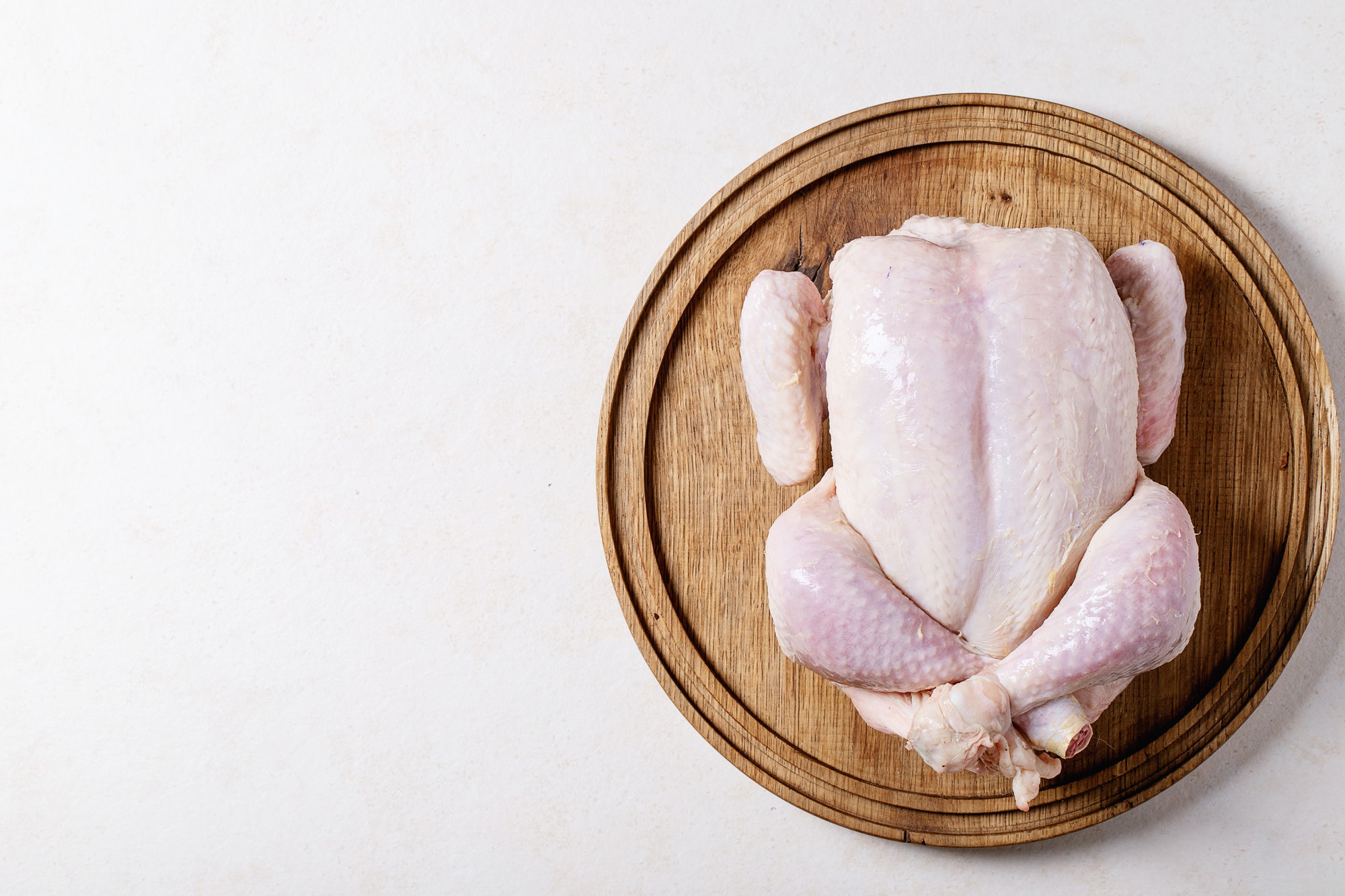
Dogs, our faithful companions, often face digestive issues that can lead to discomfort and concern for their owners. Understanding the intricacies of canine digestive health, the causes behind upset stomachs, and effective ways to manage these conditions is crucial for ensuring the well-being of our beloved pets.
To provide adequate care for a dog with an upset stomach, it’s essential to grasp the fundamentals of their digestive system. Dogs possess a shorter digestive tract than humans, affecting their ability to process certain foods and making them more prone to digestive issues. The stomach’s pH in dogs is more acidic, aiding in the breakdown of raw meat and bones but also making them sensitive to abrupt dietary changes or inappropriate food items.
Upset stomachs in dogs can arise from many factors, each potentially triggering gastrointestinal distress in our furry companions. Dietary indiscretions, such as scavenging table scraps or consuming spoiled food, are prominent culprits. Additionally, sudden shifts in diet, whether due to a change in pet food or the ingestion of unfamiliar items, can significantly unsettle their digestive balance, leading to discomfort and digestive upset. Moreover, food allergies or intolerances to specific ingredients, ranging from grains to certain proteins, may provoke adverse reactions in the gastrointestinal tract, causing symptoms like vomiting, diarrhea, or abdominal discomfort.
Beyond dietary influences, ingesting foreign objects poses a substantial risk for upset stomachs. Dogs are notorious for exploring and ingesting non-food items, from small objects like toys or clothing to toxic substances like household chemicals, medications, or harmful plants. This ingestion can result in gastrointestinal obstruction or toxicity, prompting severe symptoms and requiring immediate veterinary attention. Furthermore, bacterial or viral infections and parasitic infestations like roundworms or giardia can wreak havoc on a dog’s digestive system, causing inflammation, diarrhea, and vomiting. Underlying health conditions such as pancreatitis or inflammatory bowel disease can also provoke recurrent gastrointestinal issues, demanding thorough diagnosis and specialized management by a veterinarian. Lastly, stress or anxiety can manifest physiologically in dogs, leading to digestive disturbances, highlighting the intricate link between emotional well-being and gastrointestinal health in our canine companions.
Identifying symptoms of an upset stomach in dogs is crucial for timely care and support. Keep a keen eye on telltale signs that might indicate gastrointestinal distress in your furry friend. Vomiting is often an initial indicator, revealing irritation or discomfort in the digestive system. If vomiting occurs frequently or becomes forceful (projectile vomiting), it’s a clear sign to seek immediate attention. Similarly, diarrhea, characterized by loose or watery stools, can signify various digestive issues, from dietary indiscretions to infections or underlying health conditions.
Changes in eating habits are another vital clue to an upset stomach. A sudden loss of appetite, refusal to eat, or hesitation during mealtime might signal discomfort or nausea. Additionally, increased drooling, lip-smacking, or excessive lips licking can hint at an unsettled stomach. Watch for signs of abdominal discomfort, such as restlessness, hunching over, or sensitivity when touching the belly. Lethargy, depression, or a noticeable decrease in energy levels could accompany digestive issues, reflecting an underlying problem affecting their overall well-being. Consistently observing your dog’s behavior and promptly addressing any unusual or persistent symptoms can aid in ensuring their digestive health and overall wellness.
Selecting the right ingredients is crucial when soothing a dog’s upset stomach. Opting for easily digestible, gentle foods can help calm their stomach and provide necessary nutrients without causing further distress. Here’s a detailed look at some beneficial ingredients to consider when preparing meals for dogs with upset stomachs:

Boneless, skinless chicken breasts or thighs are lean sources of protein that are easy on a dog’s digestive system. Boiling the chicken thoroughly and removing excess fat ensures it’s gentle on the stomach.
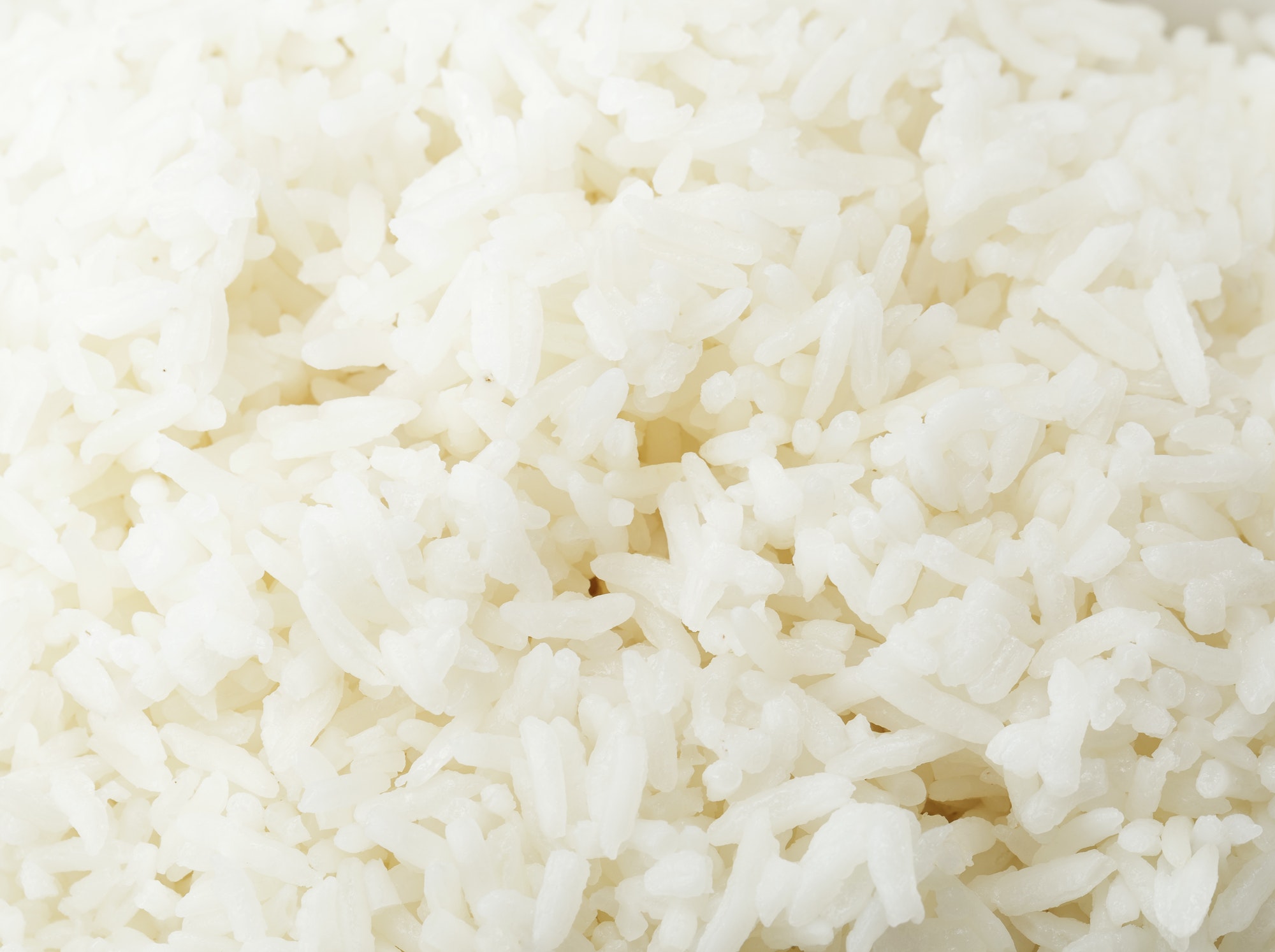
Plain, cooked white rice serves as a binding agent, aiding in firming up loose stools. It’s easily digestible and helps soothe an upset stomach by providing a bland base for the meal.
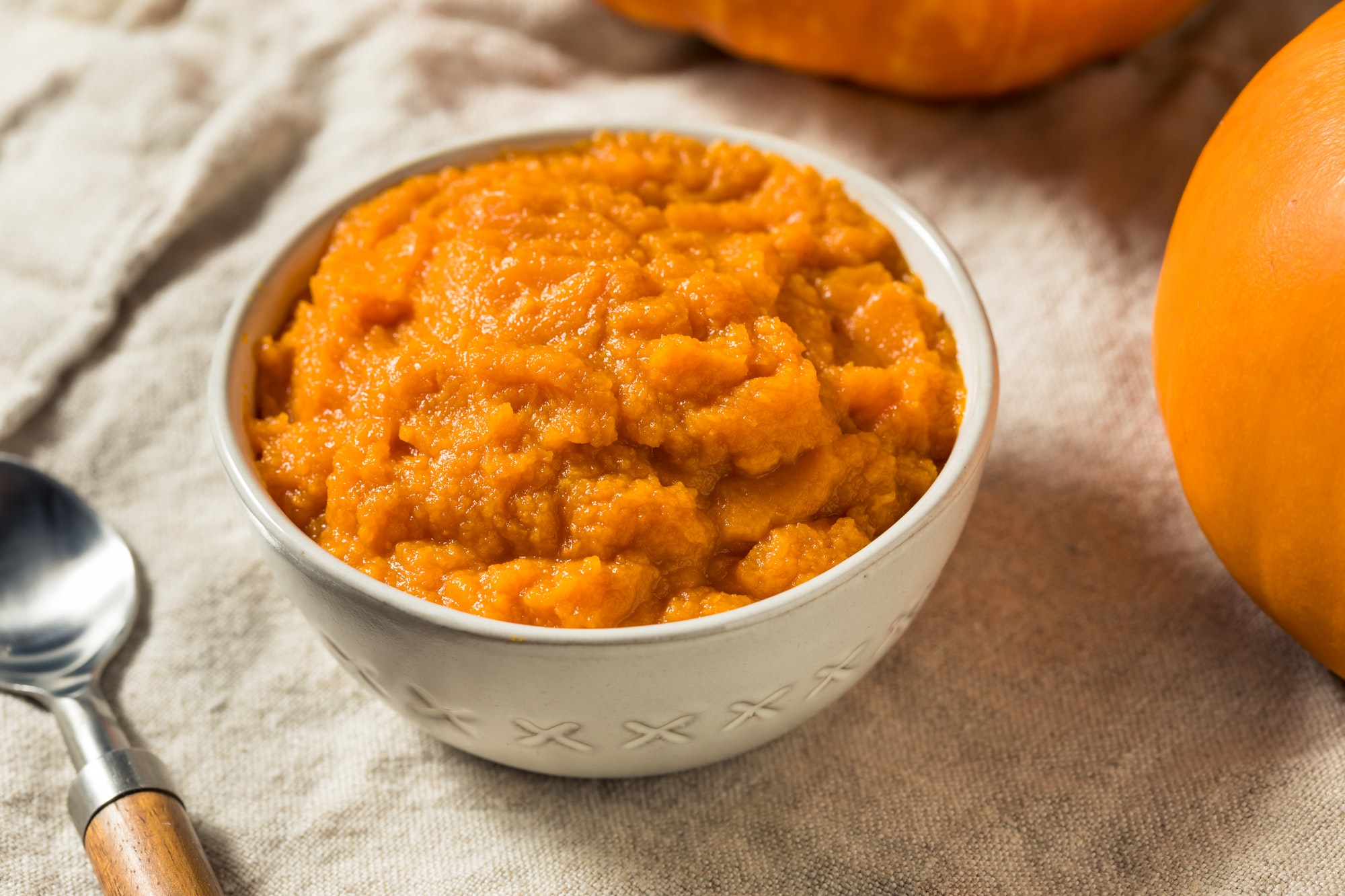
Canned or cooked plain pumpkin (not pumpkin pie filling) is an excellent source of fiber and can help regulate digestion. It can alleviate both constipation and diarrhea due to its fiber content.
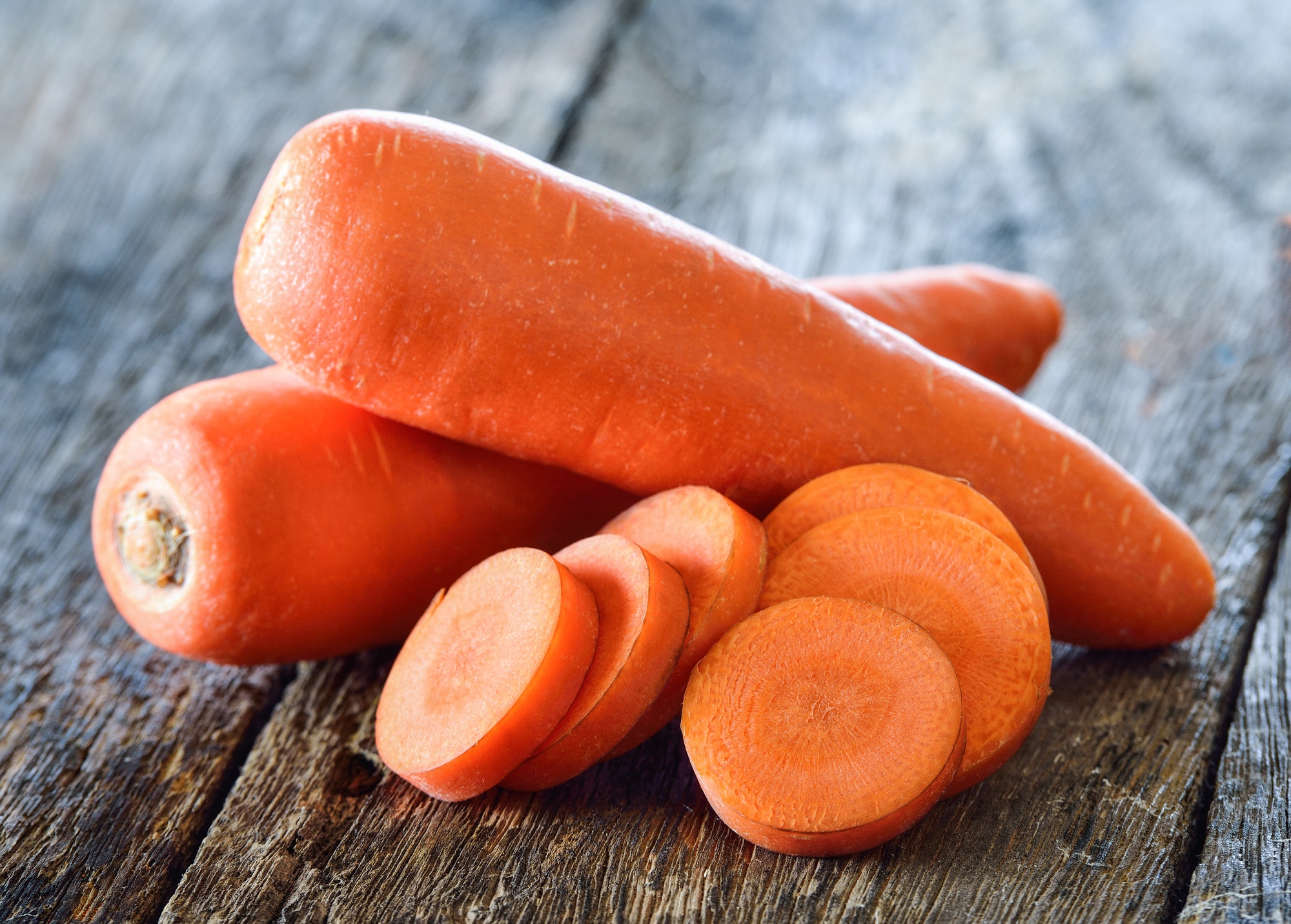
When cooked and served plain, vegetables like carrots, sweet potatoes, and green beans offer essential nutrients and fiber. Steaming or boiling these vegetables makes them easier for dogs with sensitive stomachs to digest.

Boiled potatoes, without any seasoning or additives, can be an excellent addition to a bland diet. They provide carbohydrates and are gentle on the digestive tract.
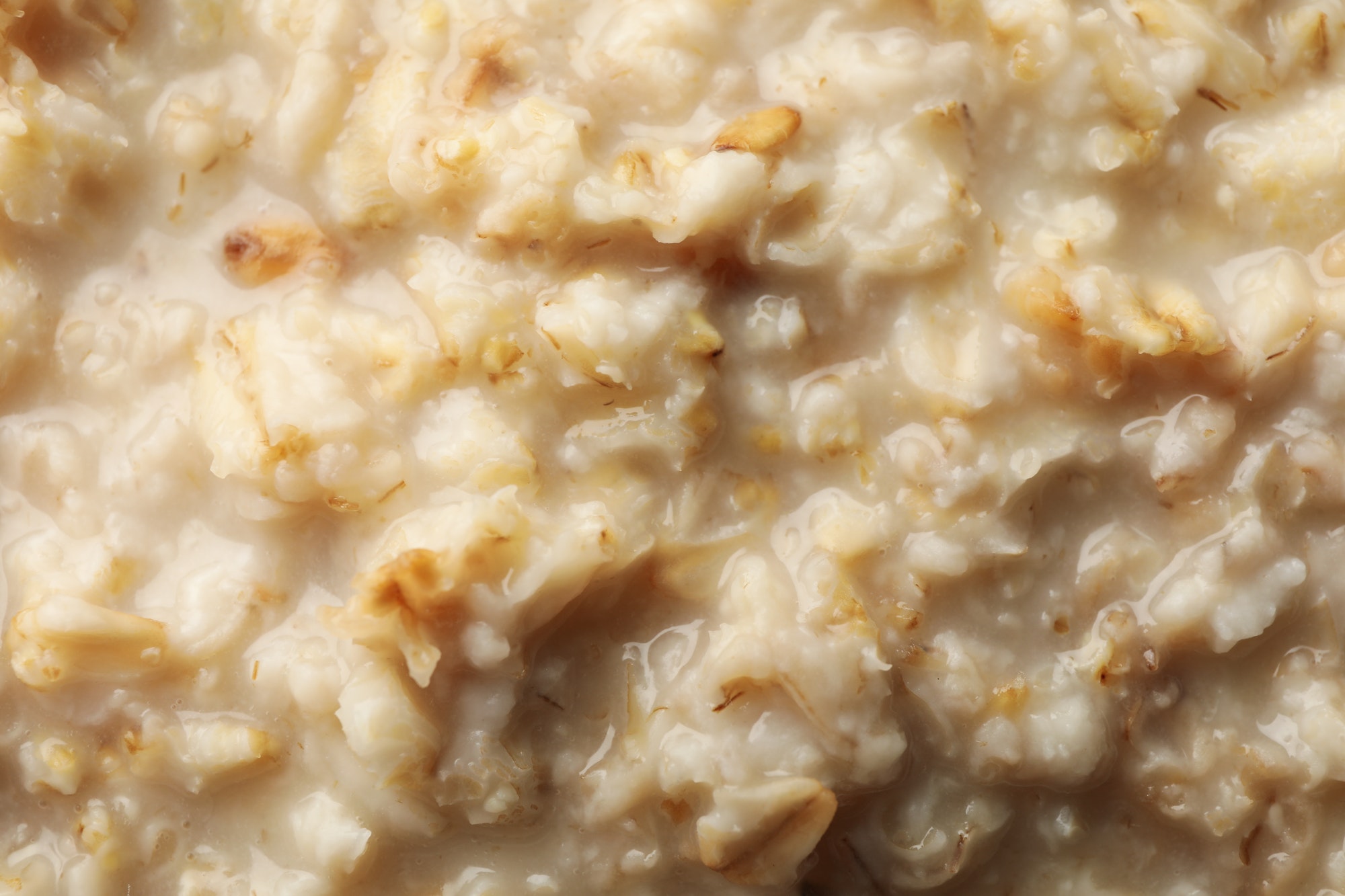
Plain-cooked oatmeal can be a suitable option for dogs with upset stomachs. It’s a source of soluble fiber that helps digestion and aids in alleviating gastrointestinal discomfort.
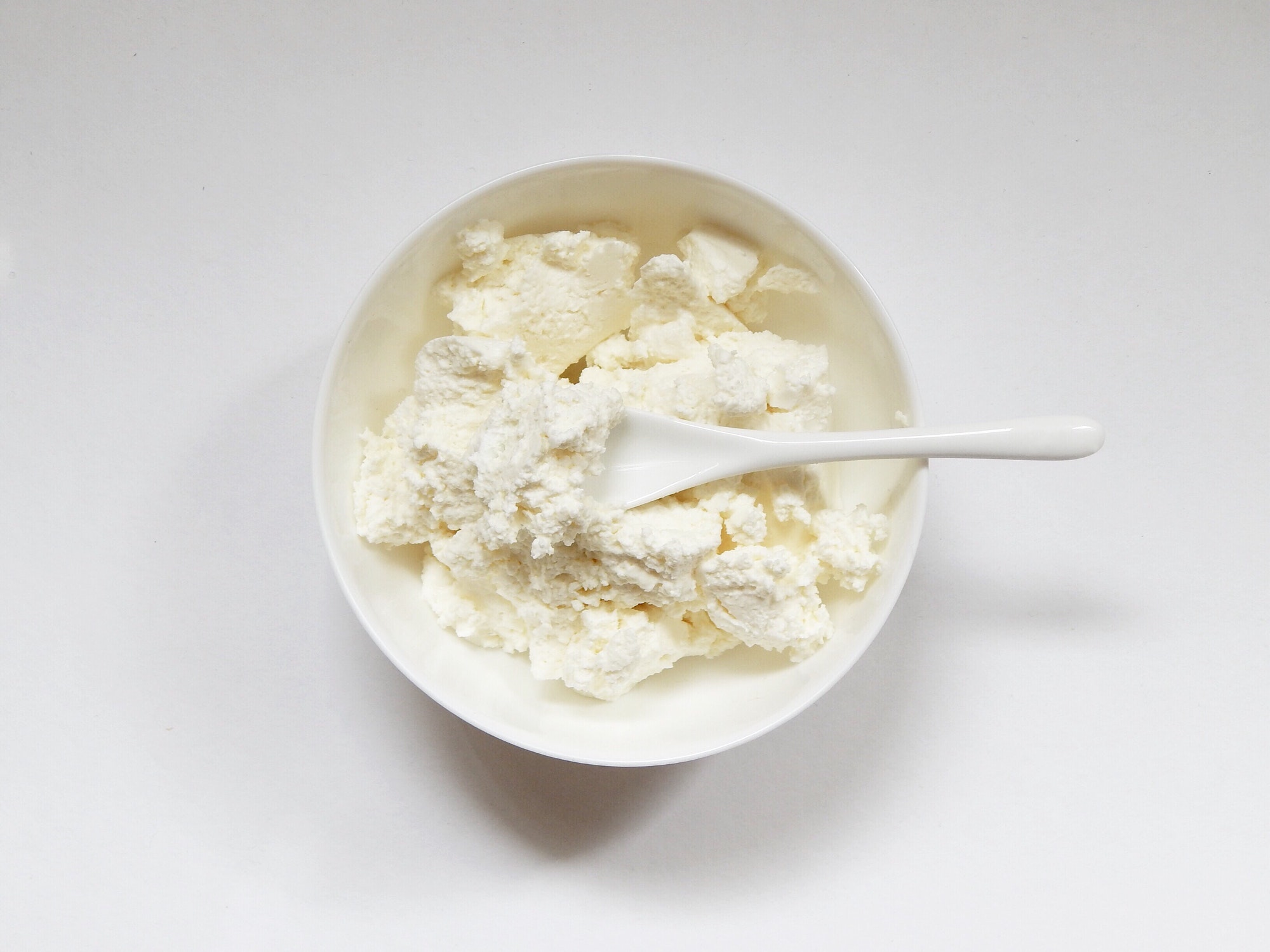
Cottage cheese can provide easily digestible protein and calcium when fed in moderation and without additives. It’s advisable to opt for low-fat varieties.
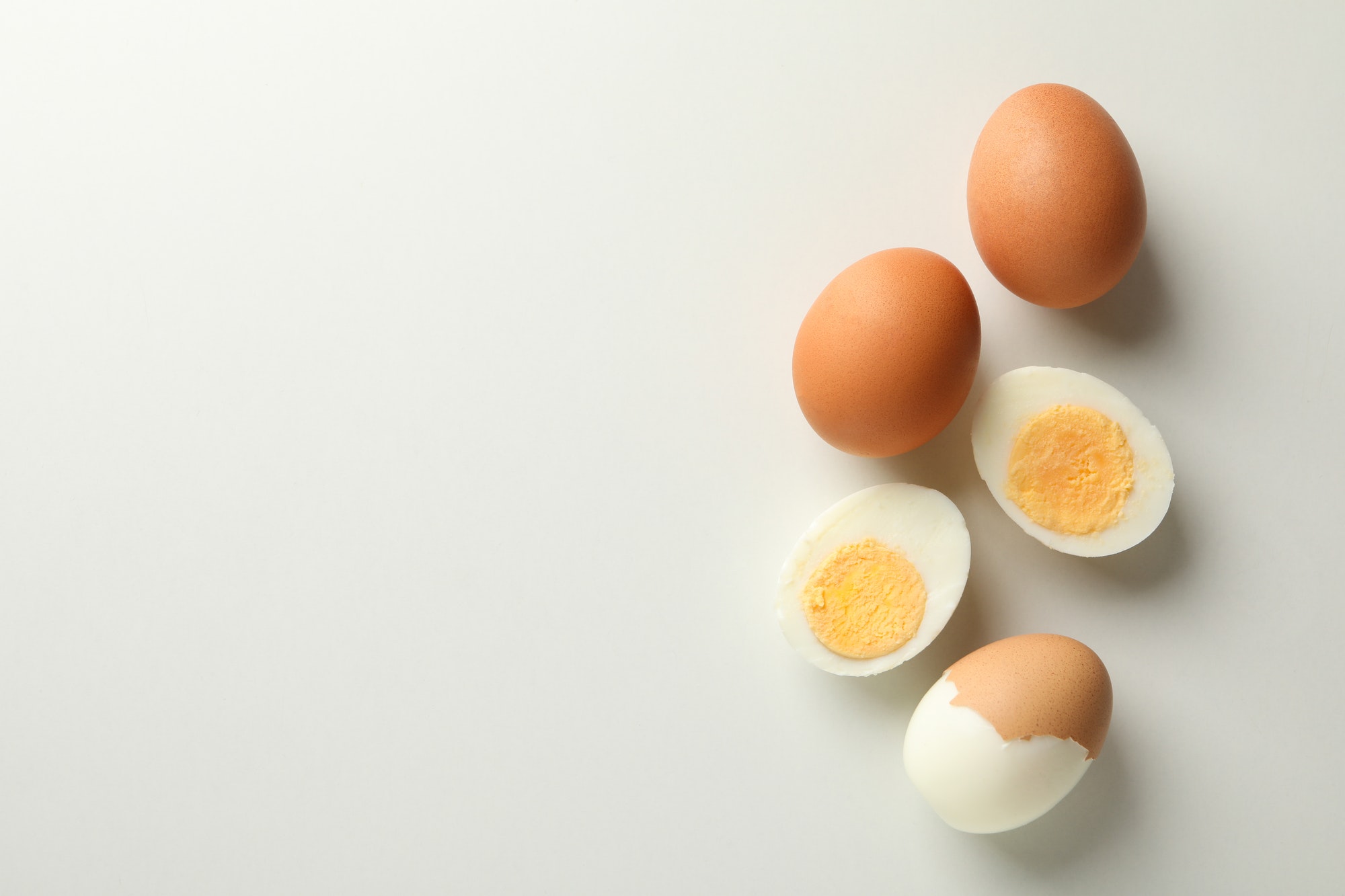
Boiled eggs are a good source of easily digestible protein. Ensure they are thoroughly cooked and fed in moderation.
When preparing meals for a dog with an upset stomach, it’s crucial to introduce these ingredients gradually and in small portions. Mixing and matching these ingredients in various combinations can provide a well-rounded, easily digestible meal plan. Remember, while these foods are often gentle on upset stomachs, it’s essential to consult with a veterinarian to ensure you’re meeting your dog’s nutritional needs and addressing any underlying health concerns. Every dog’s digestive system reacts differently, so personalized guidance from a professional is invaluable in crafting a suitable diet for your furry companion during their recovery.
Keeping your dog hydrated and electrolytes balanced is important for dogs coping with upset stomachs. Digestive disturbances, such as vomiting or diarrhea, can swiftly lead to dehydration, potentially causing severe health complications if left unaddressed. Adequate hydration is crucial to replenish lost fluids and prevent dehydration, which can quickly occur due to the increased fluid loss associated with gastrointestinal issues. Dehydration in dogs can lead to weakness, lethargy, sunken eyes, dry gums, and, in severe cases, it may affect organ function, posing a serious risk to their health.
During bouts of vomiting or diarrhea, dogs lose fluids and essential electrolytes like sodium, potassium, and chloride. These electrolytes play an important role in maintaining hydration within the body and supporting various bodily functions. Ensuring a proper electrolyte balance is essential, as imbalances can further exacerbate the dog’s condition, leading to weakness, muscle cramps, and an overall decline in health. Replenishing lost electrolytes through specially formulated rehydration fluids or electrolyte solutions recommended by a veterinarian helps restore the dog’s electrolyte balance, aiding in their recovery and preventing complications associated with imbalances.
Implementing preventive measures and adopting long-term dietary considerations are pivotal in managing dogs prone to upset stomachs. Consistency in feeding schedules and sticking to a balanced diet suitable for your dog’s digestive system are fundamental preventive steps. Gradual transitions between foods when introducing new diets can minimize the risk of digestive upsets. Opting for high-quality, easily digestible food that suits your dog’s specific dietary needs, whether choosing a hypoallergenic diet or selecting limited-ingredient formulas, can significantly reduce the likelihood of future stomach issues.
In addition to dietary adjustments, minimizing exposure to potential toxins or allergens is essential for maintaining digestive health in dogs. Ensuring a safe environment by keeping harmful substances, such as household chemicals or toxic plants, out of reach can prevent accidental ingestion. Regular vet check-ups to monitor your dog’s health and promptly addressing any emerging digestive concerns can aid in early detection and appropriate management, contributing to long-term digestive wellness in your furry companion.
If your dog is vomiting frequently, displaying projectile vomiting, or struggling to keep water down, it’s crucial to contact your vet immediately. Additionally, alarming signs such as vomiting bile, the presence of blood or unusual materials in the vomit, or indications of lethargy, depression, discomfort, or bloating demand prompt veterinary attention. If any of these symptoms are observed, contact your vet immediately.
Other instances necessitating a vet’s immediate attention include decreased urination, severe bloating, diarrhea, and abdominal pain.
Caring for your dog with an upset stomach can be a challenging experience, but a carefully planned bland diet can make a significant difference in their recovery. Every dog is different, so consulting your vet for personalized guidance is always best. With your attention, care, and a gentle diet, your furry friend will return to their playful self in no time.
Crafting a balanced diet for your four-legged companion involves more than just meat and grains. Vegetables play a pivotal role in offering a wide array of essential nutrients, vitamins, and fiber that contribute significantly to your dog’s well-being. From familiar favorites like carrots and broccoli to lesser-known gems such as bell peppers and cucumbers, let’s take a comprehensive dive into the diverse world of vegetables for dogs. Discover their unique benefits, preparation methods, and how these colorful additions can elevate your pup’s nutritional intake and overall health.
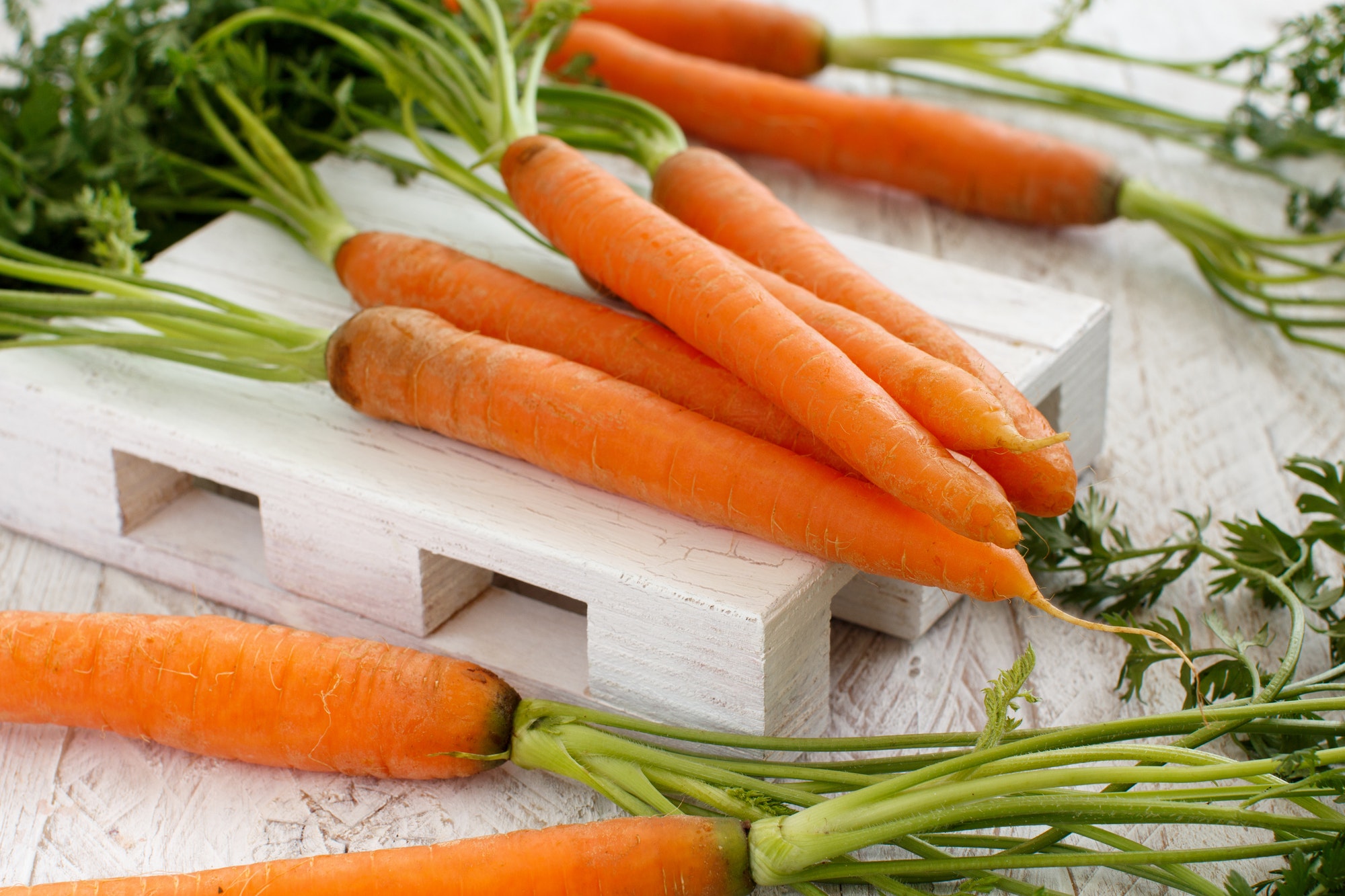
Carrots serve as a crunchy and nutritious treat for dogs, packed with beta-carotene, an essential nutrient promoting healthy eyesight and a shiny coat. Their natural firmness helps clean teeth and gums, supporting dental health in canines. Low in calories and high in fiber, carrots offer a tasty snack that aids digestion and can be a great addition to a dog’s balanced diet.
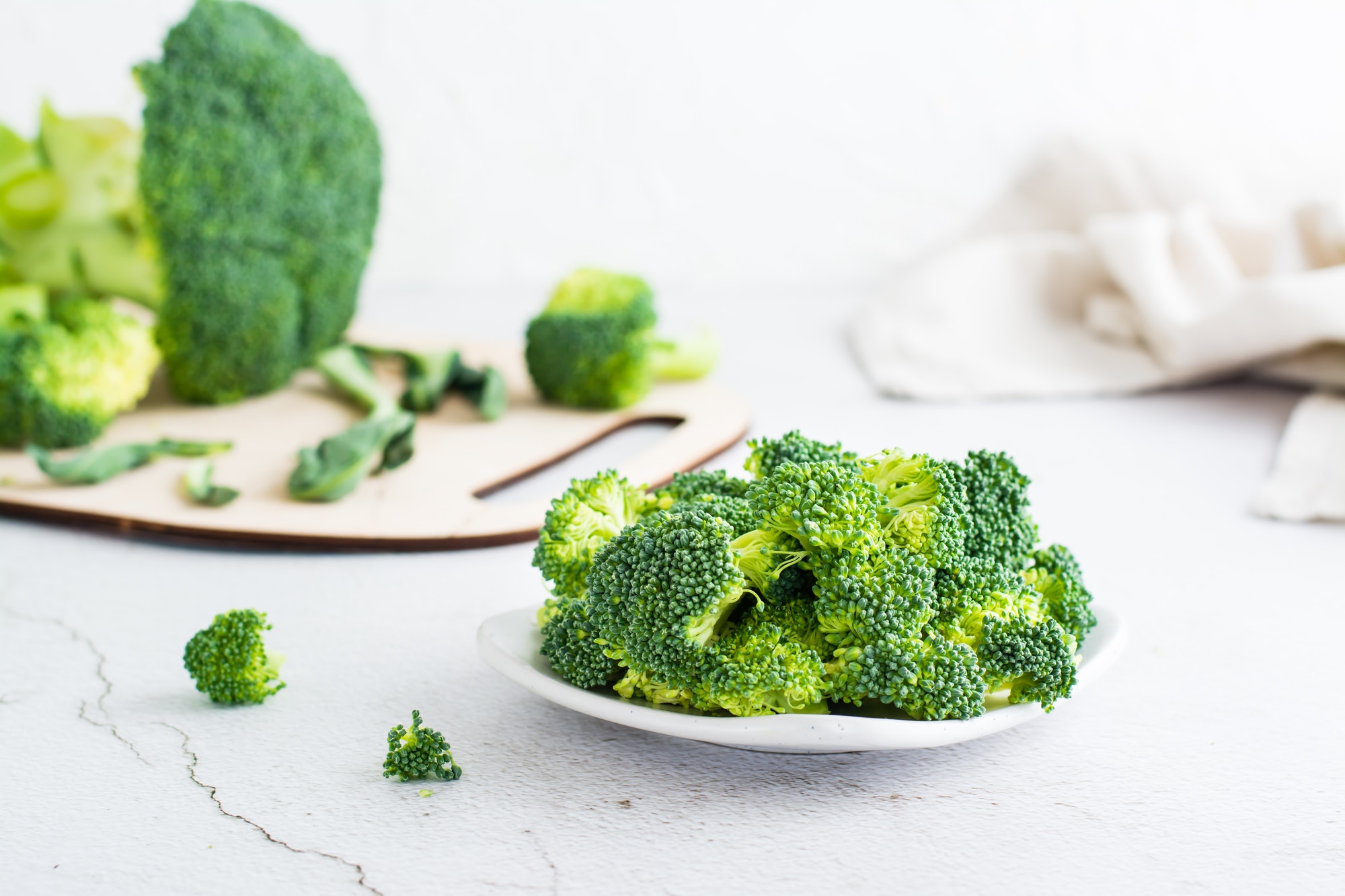
Broccoli serves as a miniature nutritional powerhouse for dogs, providing vitamins K and C, fiber, and antioxidants that support their overall health and immune system. Its crunchiness aids in dental health by reducing plaque buildup, while its nutrient density offers a range of benefits for bone and heart health in canines. However, it’s important to offer broccoli in moderation due to potential digestive sensitivities in some dogs and to avoid feeding them the stalks, which can be tough to digest. Lightly steamed or cooked, broccoli becomes a delightful and nutritious addition to your pup’s meals.
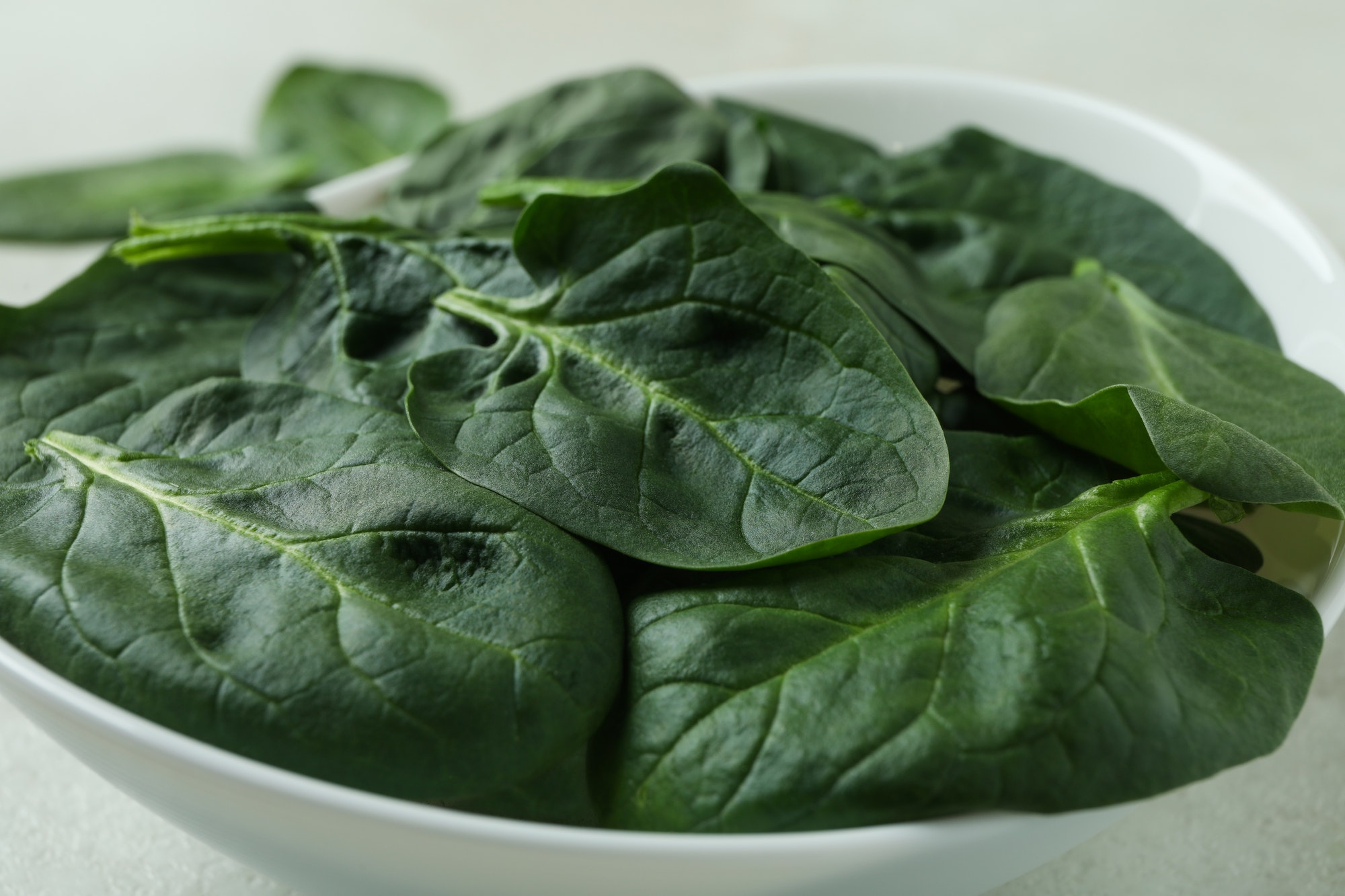
Spinach offers dogs a nutrient-packed green, brimming with iron and an array of essential vitamins and minerals that contribute to overall health. Its high nutrient density and low-calorie content make it a beneficial addition to a dog’s diet, supporting bone health and aiding in maintaining healthy skin and coat. However, due to its oxalate content, moderation is key when feeding spinach to dogs to prevent any potential impact on calcium absorption.
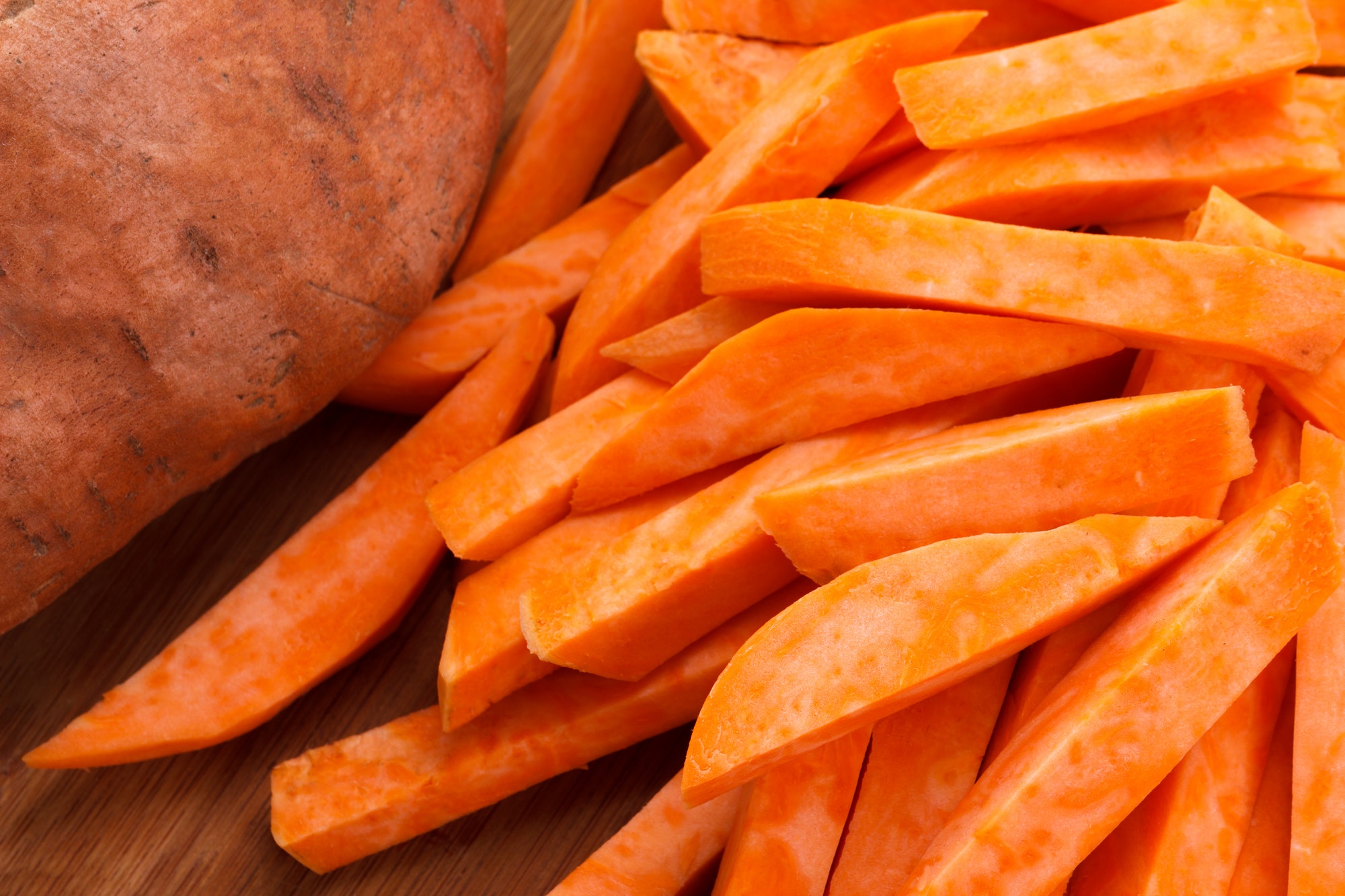
Swap regular potatoes for their vibrant orange cousins—sweet potatoes! Laden with fiber, vitamins A and C, and beta-carotene, these root vegetables are a delightful and nutritious addition to your dog’s meals. They are gentle on the stomach and supportive of digestion, making them an excellent choice for dogs with sensitive stomachs.
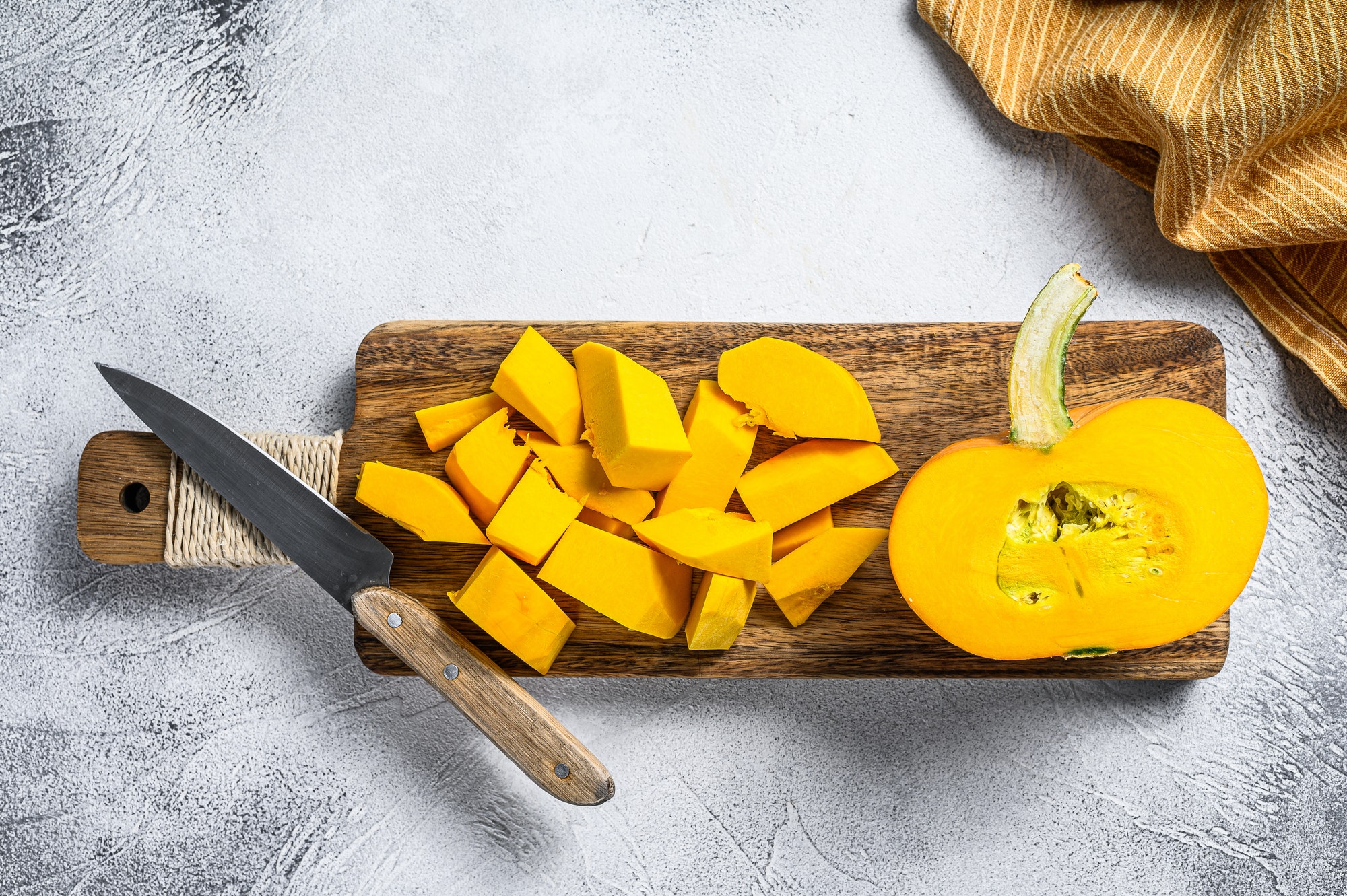
Pumpkin stands as a digestive champion, rich in fiber and moisture, aiding in regulating bowel movements and alleviating both constipation and diarrhea in dogs. Its low-calorie nature makes it a nutritious addition to a dog’s diet, providing essential nutrients without excessive calories. Additionally, packed with vitamins A, C, and E, pumpkin supports immune health and offers a delicious, irresistible treat for most dogs.

Bell peppers present dogs with a colorful nutritional boost, delivering a potent combination of vitamins A, E, and C, supporting a robust immune system and aiding in maintaining healthy eyesight. Their low-calorie content and high fiber make them an ideal addition for weight management and digestive health. Additionally, the antioxidants found in bell peppers contribute to cellular health, providing an extra layer of protection for a dog’s overall well-being. These colorful delights are a nutritious addition to your dog’s diet, whether raw or cooked, providing a flavorful and beneficial snack.
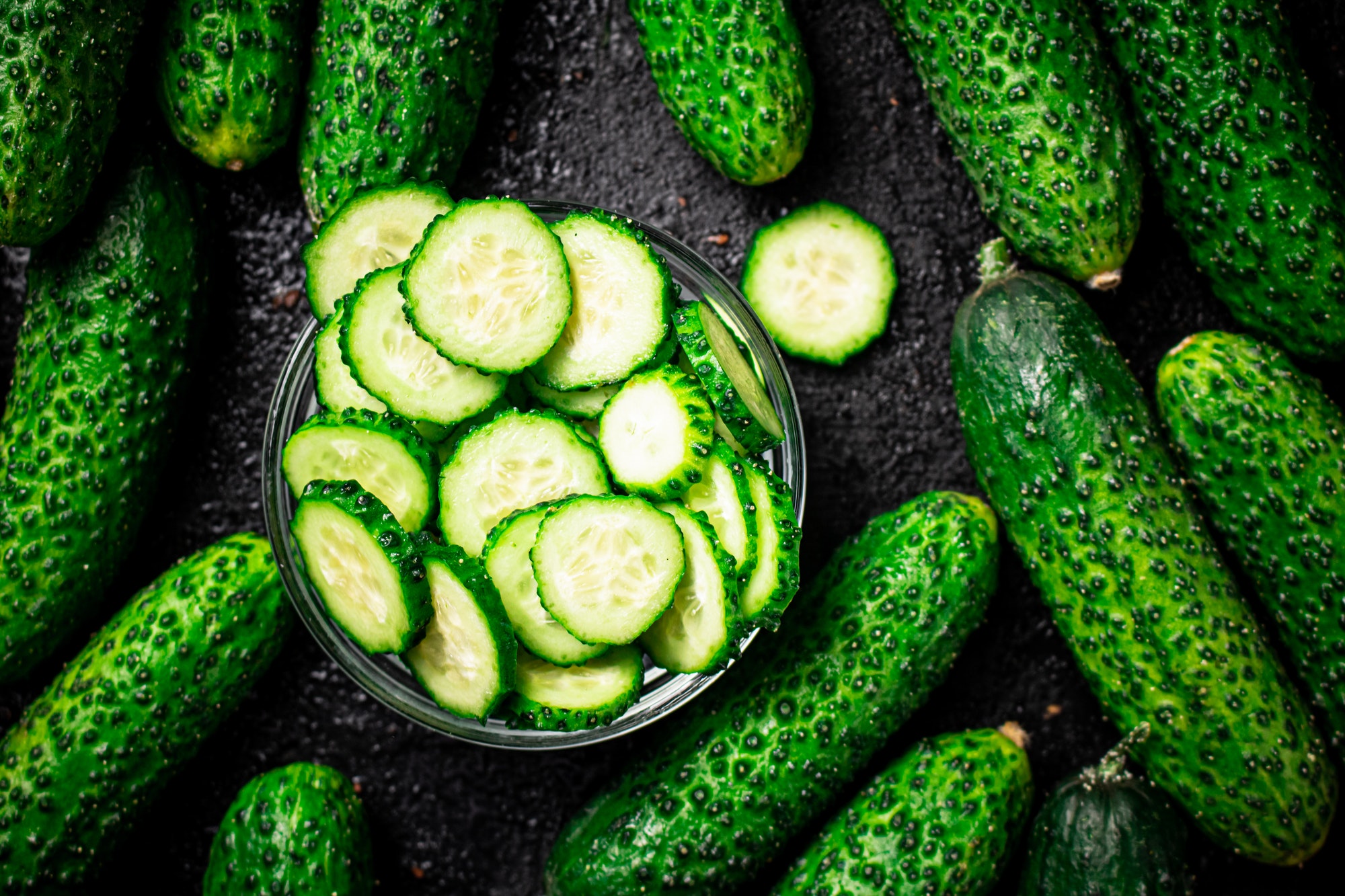
Cucumbers offer dogs a hydrating, low-calorie snack packed with vitamins K, C, and B1, supporting overall health and vitality. With their high water content and fiber, cucumbers aid in hydration and digestion, assisting in maintaining optimal gut health for our canine friends. Moreover, their crunchy texture provides a satisfying chew while offering a refreshing treat that most dogs enjoy, making them an ideal addition to a balanced diet.
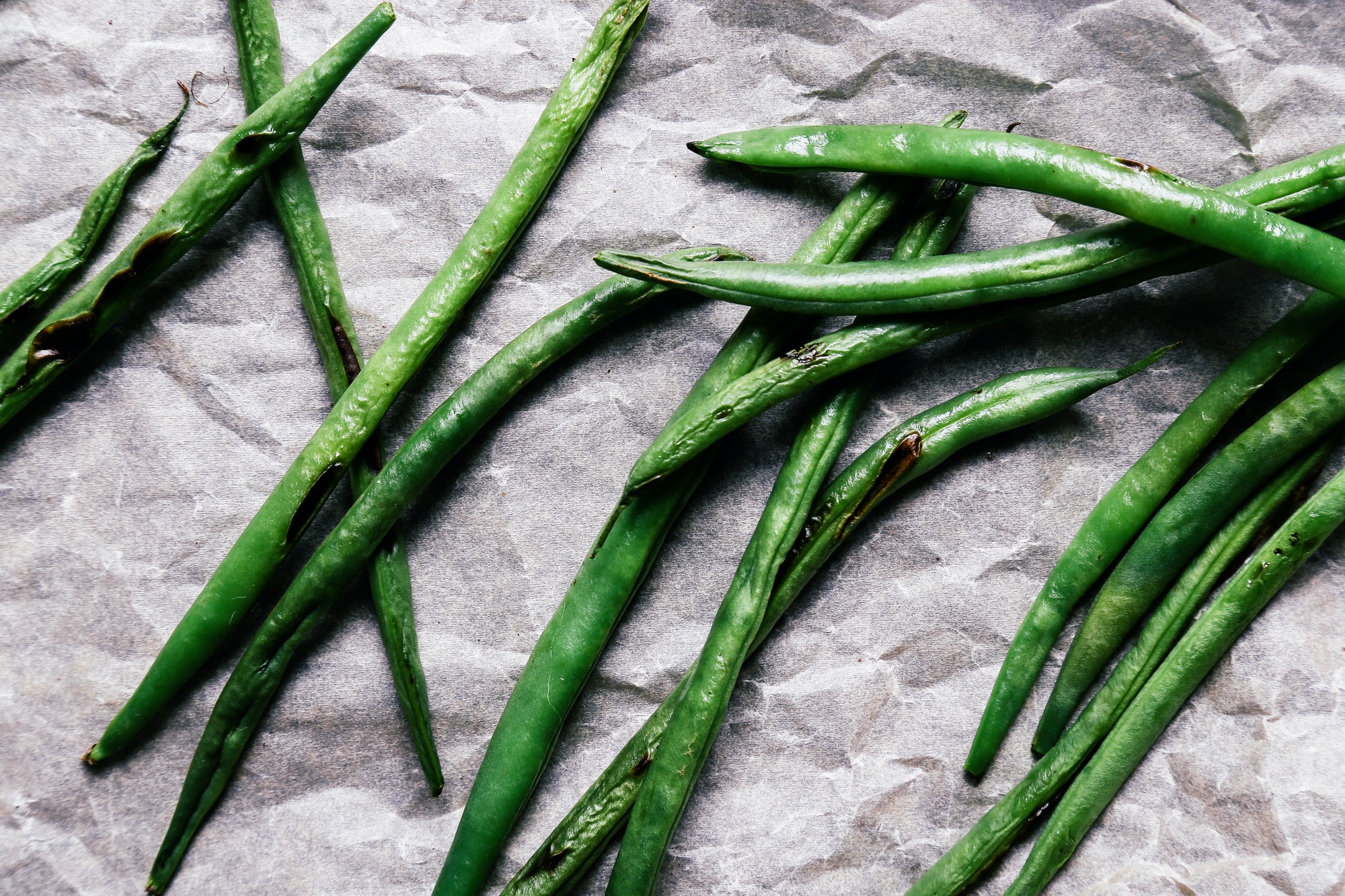
Green beans are a nutritional powerhouse for dogs, providing a fiber-rich source of vitamins like K, C, and A, along with minerals such as manganese. Their low-calorie nature makes them an excellent option for weight management and digestive health, Keeping the gut healthy and bowel movements regular. Additionally, the antioxidants present in green beans contribute to overall immune system support. Whether raw, steamed, or cooked, they make for a nutritious addition to your dog’s diet and are well-tolerated by most pups.

Zucchini offers a low-calorie, nutrient-rich option for dogs, packed with vitamins A, C, and K, as well as minerals like potassium and manganese, promoting overall health. Its high water content aids in hydration and digestion, while its fiber supports a healthy gastrointestinal tract. Additionally, zucchini serves as a valuable source of antioxidants, bolstering the immune system and contributing to cellular health in canines. It’s a versatile addition, whether grated into meals or sliced for a crunchy snack.
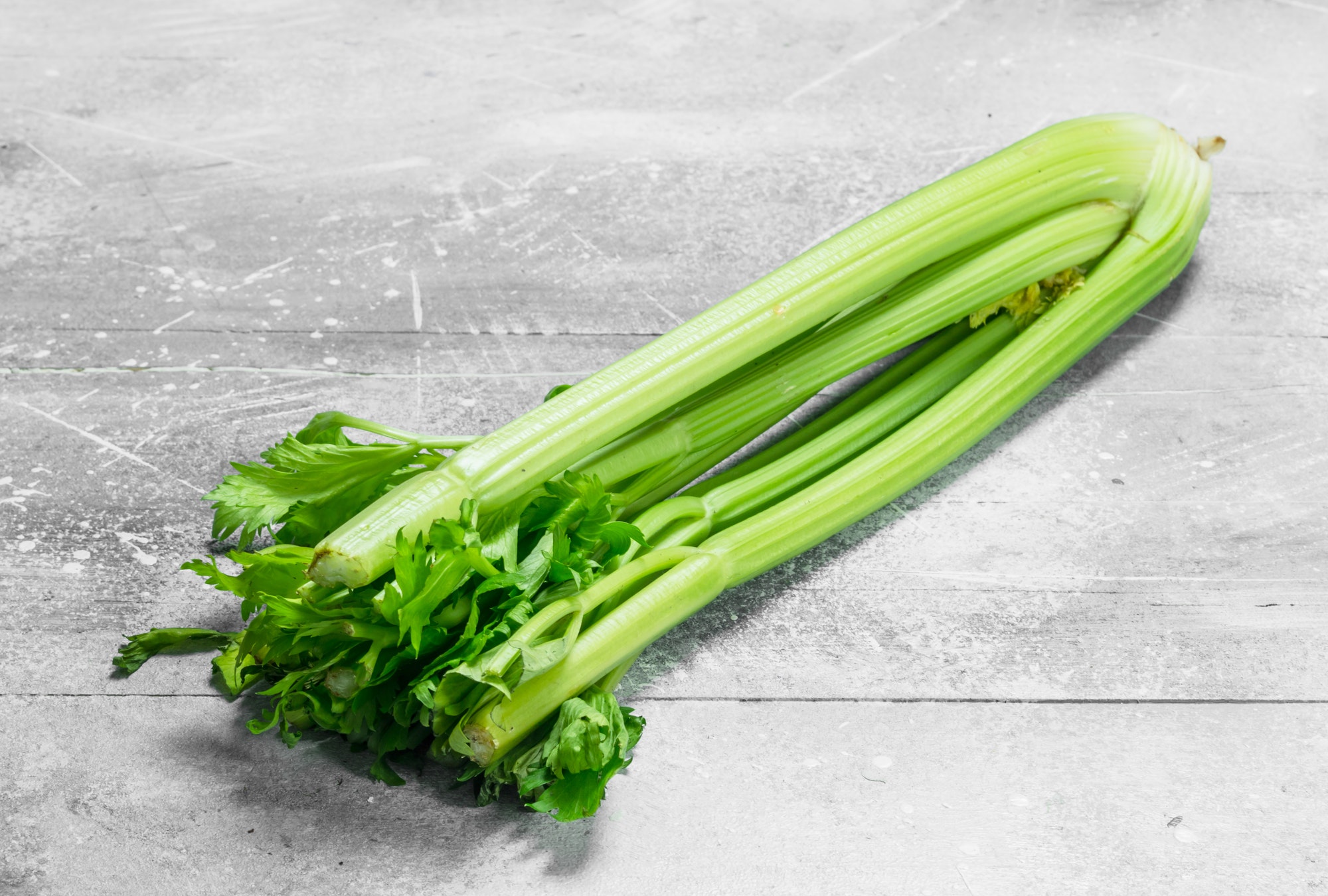
Celery is a hydrating and low-calorie snack for dogs, offering a crunchy texture that aids in cleaning teeth and promoting oral health. Rich in vitamins A, C, and K, as well as antioxidants, celery supports overall immune function and cellular health in canines. However, moderation is key due to its fibrous nature, which can be challenging for some dogs to digest in large quantities.
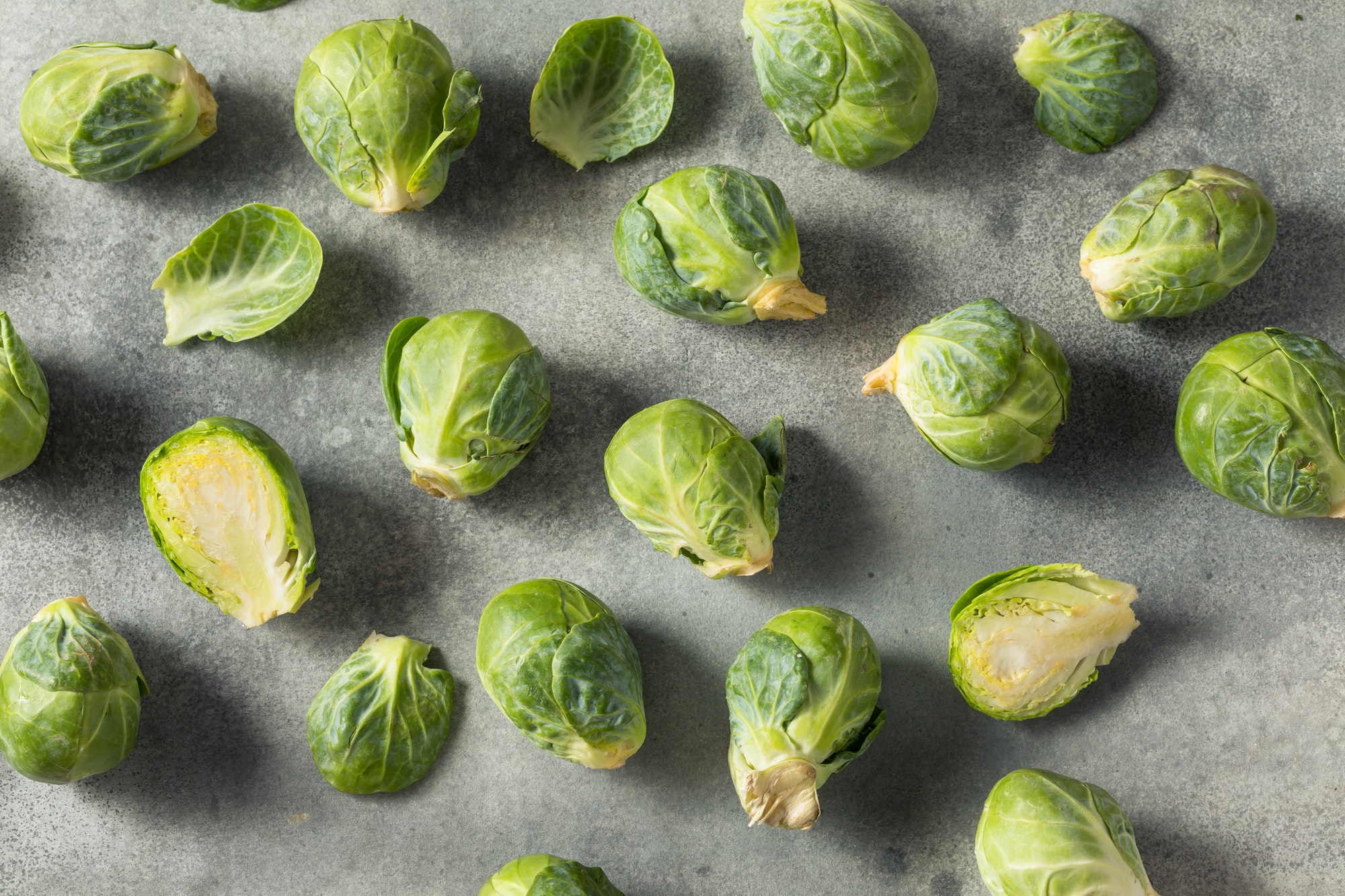
Brussels sprouts provide a nutrient-rich addition to a dog’s diet. Brussels sprouts are packed with vitamins C, A, and K, along with fiber and antioxidants, supporting various aspects of canine health. Their anti-inflammatory properties may benefit dogs with certain health conditions, while their low-calorie nature makes them suitable for weight management. However, as with any new food, introducing brussels sprouts gradually is advisable to ensure they’re well-tolerated by your furry friend. These miniature cabbages can be served cooked or raw, providing a nutrient boost to your dog’s diet.

Parsley offers dogs a breath-freshening herb rich in vitamins A and C, promoting overall immune health and contributing to their well-being. Its antioxidant properties support cellular health, while its low-calorie nature makes it a suitable addition to a dog’s diet without adding excess calories. However, moderation is important, as large amounts of parsley may not be ideal for all dogs and might cause digestive upset.

Asparagus provides dogs with vitamins A, C, and K, along with fiber and antioxidants, supporting immune health and aiding in overall well-being. Its low-calorie content makes it an excellent addition for dogs managing weight, while its nutrients contribute to bone and heart health. However, asparagus should be served in moderation and cooked to enhance digestibility and prevent potential choking hazards. It can be steamed or grilled and offered as a nutritious treat.
When serving vegetables to your dog, it’s crucial to prepare them properly. Beginning with a thorough cleansing process, washing vegetables diligently is important to eliminate any residues of pesticides or contaminants that might pose health risks to your furry friend. Next, employing careful slicing or chopping into smaller, easily manageable pieces becomes a crucial step, facilitating smoother digestion and reducing the risk of choking hazards.
Certain vegetables benefit from cooking or steaming, processes that not only enhance their digestibility but also unlock and retain essential nutrients for your dog’s optimal absorption. These methods soften tougher textures, making the vegetables more palatable and easier for your canine companion’s digestive system to process efficiently.
A pivotal aspect to keep in mind is to abstain from seasoning or adding spices, oils, or any additives to the vegetables. While these flavor-enhancing elements might appeal to human taste buds, they can be potentially harmful or disruptive to a dog’s digestive system. Sticking to plain and unseasoned vegetables ensures a safe and suitable dietary addition for your furry friend, promoting their health and well-being without introducing unnecessary risks.
When making changes to your dog’s dietary regimen, the careful and gradual introduction of new foods is important. Begin with small servings, allowing your dog’s system to acclimate to these new additions. This measured approach serves as a vital observation period, enabling you to closely monitor your dog’s reactions for any signs of digestive unease or potential allergies that might emerge as they sample these fresh vegetables. This methodical process not only ensures a smoother transition but also allows you to identify any adverse reactions early on.
Seeking advice from a veterinarian or pet nutritionist stands as an invaluable step in this journey. Their expertise and understanding of your dog’s unique health profile can provide tailored recommendations. This personalized guidance ensures that the selected vegetables align harmoniously with your dog’s specific nutritional needs, considering factors such as breed, age, existing health conditions, and any dietary sensitivities or allergies.
The incorporation of an extensive array of vegetables into your dog’s dietary routine offers a myriad of nutritional advantages, including an enriching tapestry of essential nutrients, vitalizing vitamins, and invaluable fiber content. Yet, the crux of ensuring your canine’s optimal well-being extends beyond just the variety of vegetables provided. Tailoring their meal plan to suit their distinct nutritional needs is paramount. By customizing their diet, you’re ensuring they receive the precise nourishment required for their specific breed, age, and health status.
Remember, while the introduction of vegetables into their diet is a significant step towards a healthier lifestyle, it’s the holistic combination of tailored nutrition, exercise, affectionate care, and regular health check-ups that cultivate an environment where your furry friend can flourish and revel in a life brimming with well-being and companionship.
Ensuring your furry companion thrives involves more than just scooping kibble into their bowl—it’s about understanding the building blocks of their nutrition. When it comes to the best proteins for dogs, the choices extend far beyond the familiar chicken or beef. From nutrient-packed options like fish and venison to the often-overlooked bison and duck, each protein source offers unique benefits that can elevate your dog’s health. In this comprehensive guide, we’ll navigate through the world of proteins, unveiling the top picks and exploring how these diverse options can power your pup’s vitality and well-being.
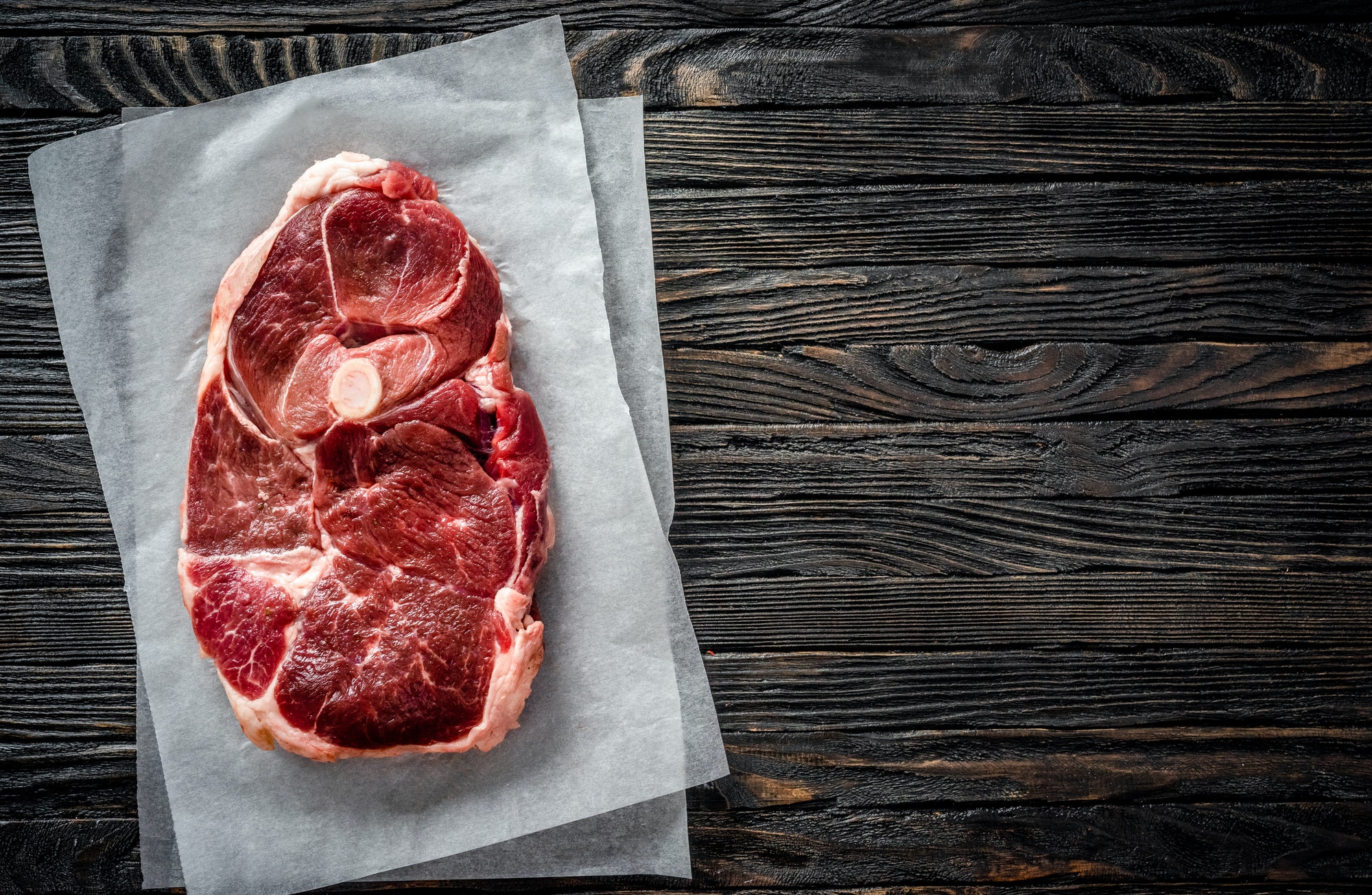
Lamb is a standout protein source that offers myriad health benefits for our canine companions. Full of essential nutrients like vitamin B12, iron, and zinc, lamb presents a wholesome package of vital elements crucial for supporting various bodily functions in dogs. These nutrients are pivotal in bolstering the immune system, aiding red blood cell formation, and maintaining optimal nerve function. Beyond its nutritional content, lamb also boasts an excellent amino acid profile, providing the necessary building blocks for tissue repair, muscle growth, and overall body maintenance in our furry friends.
What makes lamb an exceptional protein source for dogs is its high digestibility, making it an appealing protein source for dogs with sensitive stomachs or digestive issues. This digestibility factor ensures that dogs can derive maximum nutritional value from this protein source, promoting overall health and well-being. Additionally, lamb contains compounds like conjugated linoleic acid (CLA) and taurine, further contributing to its health-boosting properties. CLA is renowned for its anti-inflammatory properties and immune support. At the same time, taurine plays a pivotal role in maintaining a strong and healthy heart, which is essential for the longevity of our furry companions.
Moreover, vitamin B12 in lamb is another reason it is a beneficial protein source for dogs. Vitamin B12 is crucial in supporting brain health and cognitive function in canines. By potentially warding off conditions like dementia and promoting mental acuity, lamb offers a delectable meal and a nutritious addition to your dog’s diet. In summary, the nutrient density, impressive amino acid composition, digestibility, and health-boosting components collectively position lamb as a stellar protein source that can contribute significantly to your dog’s overall health and vitality.
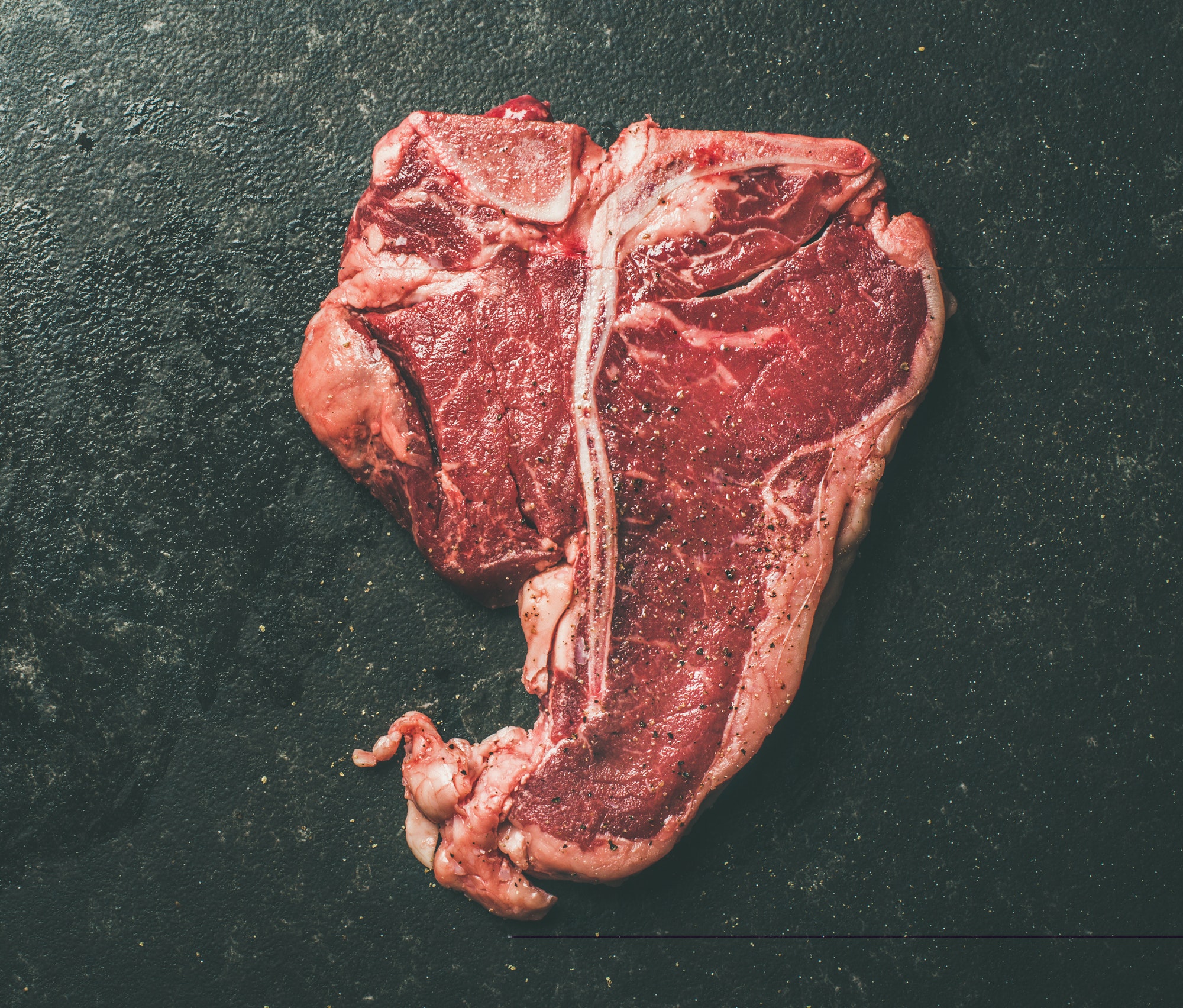
Beef is a widely recognized protein source for dogs, valued not only for its palatability but also for its nutritional benefits. Packed with essential nutrients like high-quality protein, iron, zinc, B vitamins, and amino acids, beef is an excellent component in a dog’s diet. Its protein content aids muscle growth and repair, supporting your furry companion’s overall health and energy levels. Moreover, the iron in beef assists in the formation of red blood cells, contributing to proper oxygen transport throughout the body, which is vital for your dog’s vitality and stamina.
When selecting beef as a protein source for your dog, it’s crucial to consider the quality and preparation. High-quality, lean beef cuts without added sauces or seasonings are preferred, ensuring your pet receives the full benefits without unnecessary additives. Additionally, proper cooking or raw feeding practices should be followed to eliminate any harmful bacteria that could affect your dog’s digestive system. It’s advisable to speak to a veterinarian or pet nutritionist to determine the appropriate portion sizes and ensure a balanced diet when incorporating beef into your dog’s meals.
Despite its nutritional advantages, some dogs might have sensitivities or allergies to beef, leading to digestive issues or skin problems. Monitoring your dog’s reaction to beef and being mindful of any adverse reactions is crucial. In such cases, alternative protein sources like chicken, turkey, fish, or lamb can be explored to meet your dog’s dietary needs while avoiding potential allergens. Ultimately, beef can be a valuable protein source for dogs, but individual considerations and moderation should guide its inclusion in their diet for optimal health and well-being.

Chicken is a commonly used and highly regarded protein source for dogs, cherished for its nutritional value and digestibility. Packed with lean protein, vitamins such as B6 and B12, minerals like zinc and iron, and essential amino acids, chicken offers a well-rounded package of nutrients beneficial for a dog’s overall health. Its easily digestible nature makes it a great choice for dogs prone to allergies and those with sensitive stomachs. It often serves as a foundation for many commercial dog foods due to its palatability and nutritional profile.
When considering chicken as a protein source for your furry friend, selecting high-quality, lean cuts without skin and bones is recommended. Cooking chicken thoroughly is essential to eliminate harmful bacteria, ensuring your dog’s safety and well-being. Moreover, incorporating chicken into a balanced diet alongside other crucial nutrients like vegetables, grains, or supplements helps meet your dog’s nutritional requirements. It supports their immune system, muscle development, and energy levels.
While chicken is a valuable protein source for many dogs, some canines may have allergies or intolerances. When introducing new foods, monitor your dog for any adverse reactions, such as digestive problems or skin issues. If your pet displays sensitivity to chicken, alternative protein sources such as turkey, beef, fish, or lamb can provide similar nutritional benefits while catering to their dietary needs. Chicken is a widely accepted and nutritious protein option for dogs, contributing to their overall health and vitality when incorporated into a well-balanced diet.
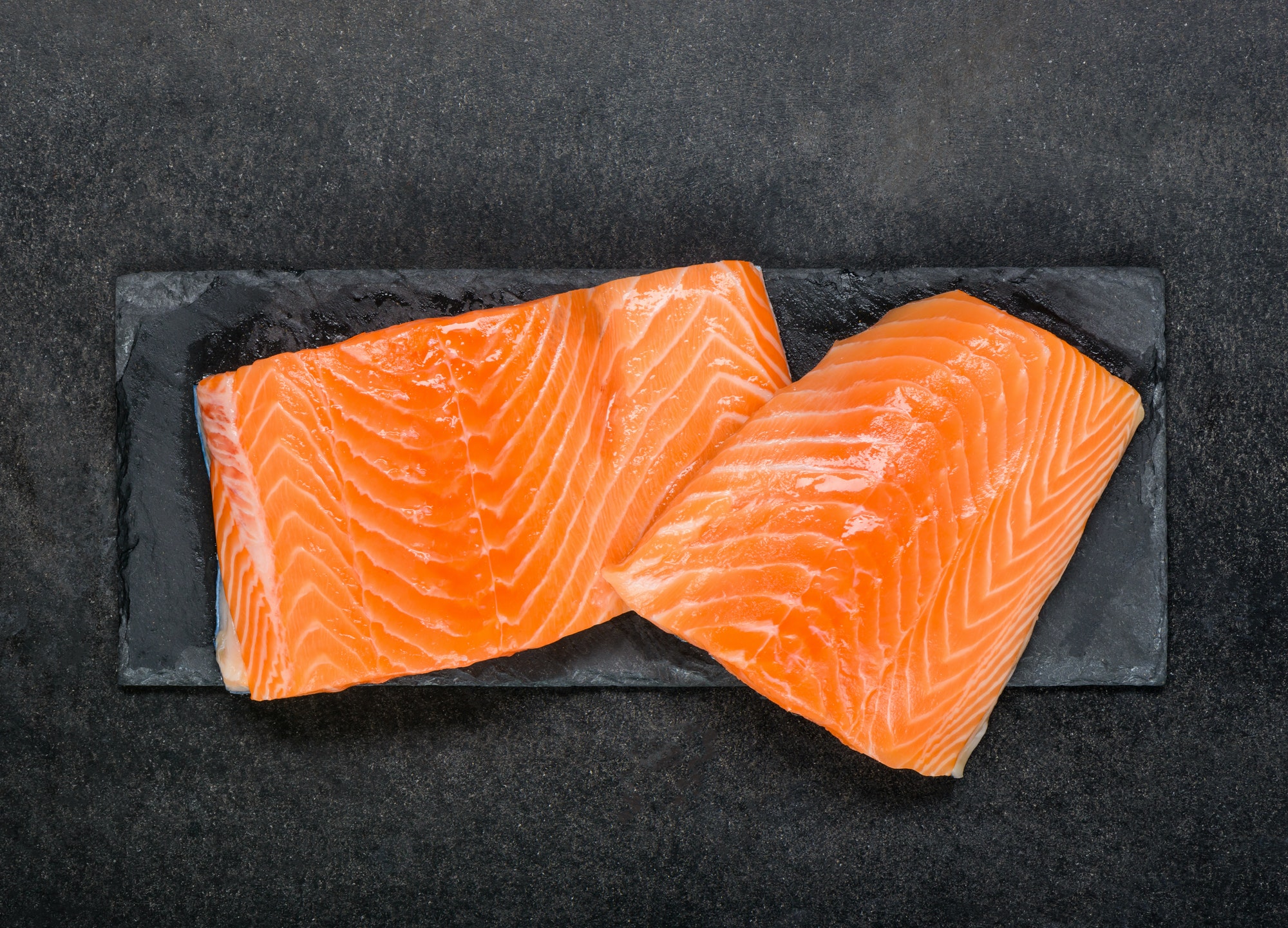
Fish is a fantastic protein source for dogs, offering myriad health benefits. Fish is rich in omega-3 fatty acids like EPA and DHA, which contribute to a dog’s healthy skin, coat, and immune system. These fatty acids possess anti-inflammatory properties, aiding in joint health, reducing inflammation, and supporting cognitive function in dogs, particularly in aging or senior pets. Additionally, fish provides high-quality protein, essential amino acids, vitamins such as D and B12, and minerals like selenium, all vital for a dog’s growth, muscle maintenance, and immune system support.
When incorporating fish into your dog’s diet, selecting species low in mercury and ensuring it’s fully cooked or properly prepared is crucial. Cooked fish without added seasonings or sauces is the safest option, eliminating any potential risks associated with raw fish consumption, such as parasites or bacterial infections. While fish can be an excellent addition to a dog’s diet, it’s important to moderate intake due to the potential mercury content in certain species, particularly for smaller breeds or dogs with specific health conditions.
Some dogs may exhibit allergies or sensitivities to certain types of fish. It is important to observe your dog for any adverse reactions after introducing fish into their diet. If your pet shows signs of intolerance, alternative protein sources like chicken, beef, or lamb can still provide the necessary nutrients without triggering allergic responses. Fish can be a highly beneficial protein source for dogs when chosen and prepared thoughtfully, contributing to their overall health and well-being when part of a balanced diet.
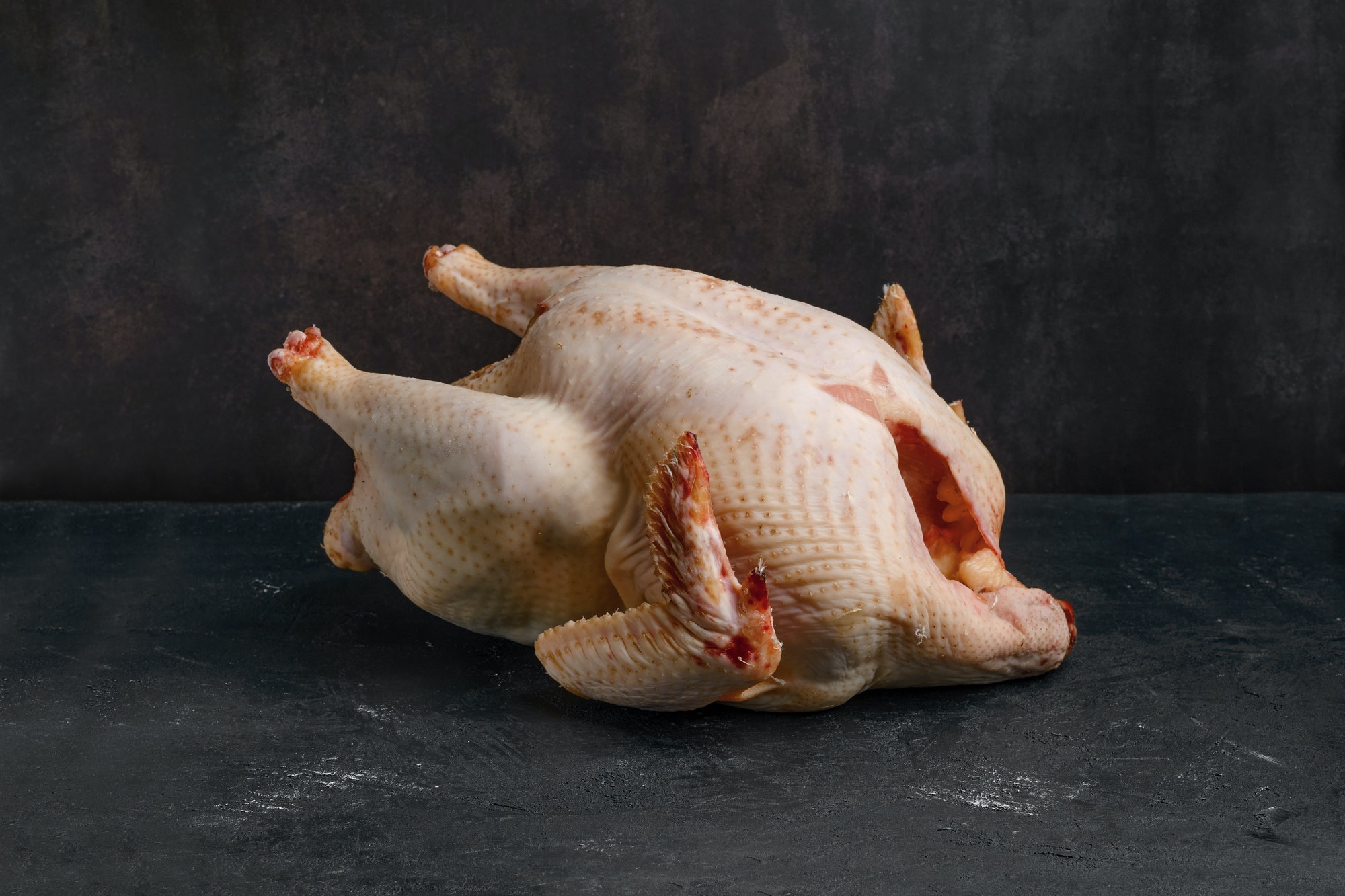
Turkey serves as a nutritious protein source for dogs, offering an array of essential nutrients beneficial for their health. Packed with lean protein, vitamins such as B6 and B12, zinc, and selenium, turkey contributes to muscle development, immune function, and overall vitality in dogs. Its low-fat content makes it an ideal protein option for canines prone to weight gain or those requiring a leaner diet. Additionally, turkey contains tryptophan, an amino acid that aids in regulating mood and promoting a sense of calmness, which can benefit anxious or stressed dogs.
When including turkey in your dog’s diet, opt for lean, boneless cuts without seasoning or added ingredients. Cooking the turkey thoroughly ensures the elimination of harmful bacteria, safeguarding your pet’s digestive health. Incorporating turkey into a well-balanced diet alongside other nutritious components like vegetables and grains can provide a complete array of essential nutrients, supporting your dog’s overall health and well-being.
While turkey is generally considered safe and nutritious for dogs, some canines might have sensitivities or allergies to poultry proteins. Observing your dog for any adverse reactions after introducing turkey into their meals is essential. If allergies or digestive issues arise, exploring alternative protein sources such as fish, beef, or lamb can help meet your dog’s dietary needs without triggering allergic responses. Overall, turkey is a wholesome protein option for dogs, offering a range of nutrients vital for their health when incorporated sensibly into their diet.
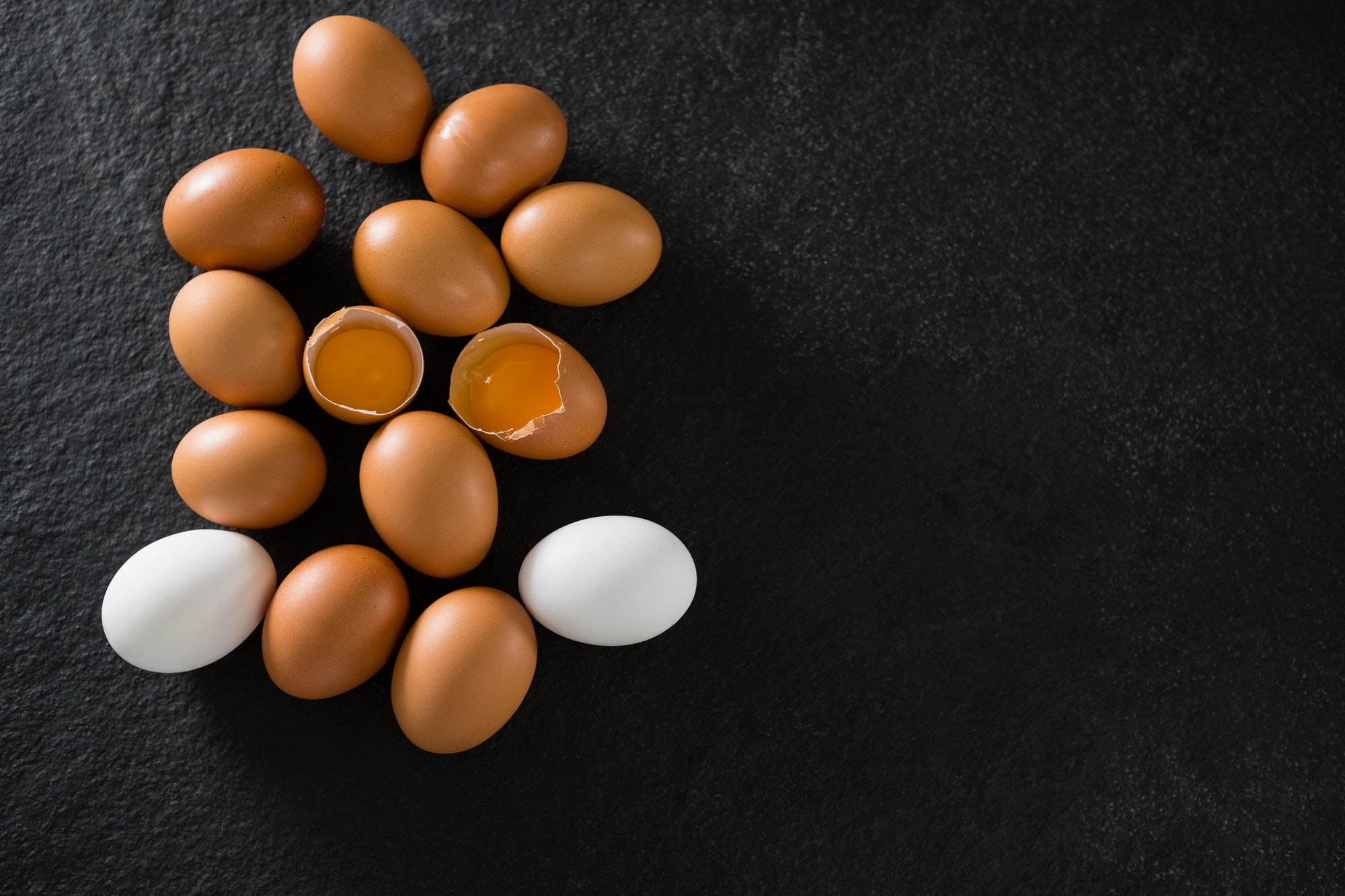
Eggs are a highly nutritious and easily digestible protein source for dogs, packed with essential amino acids, vitamins, and minerals. They provide a complete protein profile supporting muscle development, tissue repair, and overall dog growth. Eggs are rich in nutrients like riboflavin, selenium, and vitamin D, contributing to healthy skin, coat, and immune function. Additionally, the presence of biotin in eggs aids in maintaining healthy skin and promoting a lustrous coat in dogs.
Incorporating eggs into a dog’s diet can be beneficial, especially when served cooked, to avoid any potential risks associated with raw egg consumption, such as bacterial contamination or interference with nutrient absorption due to avidin, a protein found in raw egg whites. Offering eggs as an occasional treat or adding them as a supplement to a balanced diet can provide a nutrient boost for your furry companion. For dogs with specific dietary needs or those prone to allergies, eggs can serve as an alternative protein source that’s easily tolerated and nutritious.
While eggs are generally safe and beneficial for most dogs, monitoring individual reactions is essential. Some dogs might have allergies or sensitivities to eggs, so introducing them gradually and observing for any adverse reactions like digestive upset or skin issues is important. If your dog shows signs of intolerance, consulting with a veterinarian can help determine suitable alternative protein sources while meeting your pet’s nutritional needs. Overall, eggs can be a valuable source of protein in a dog’s diet, offering a range of nutrients that contribute to their overall health and well-being when included in moderation and with consideration for individual dietary needs.
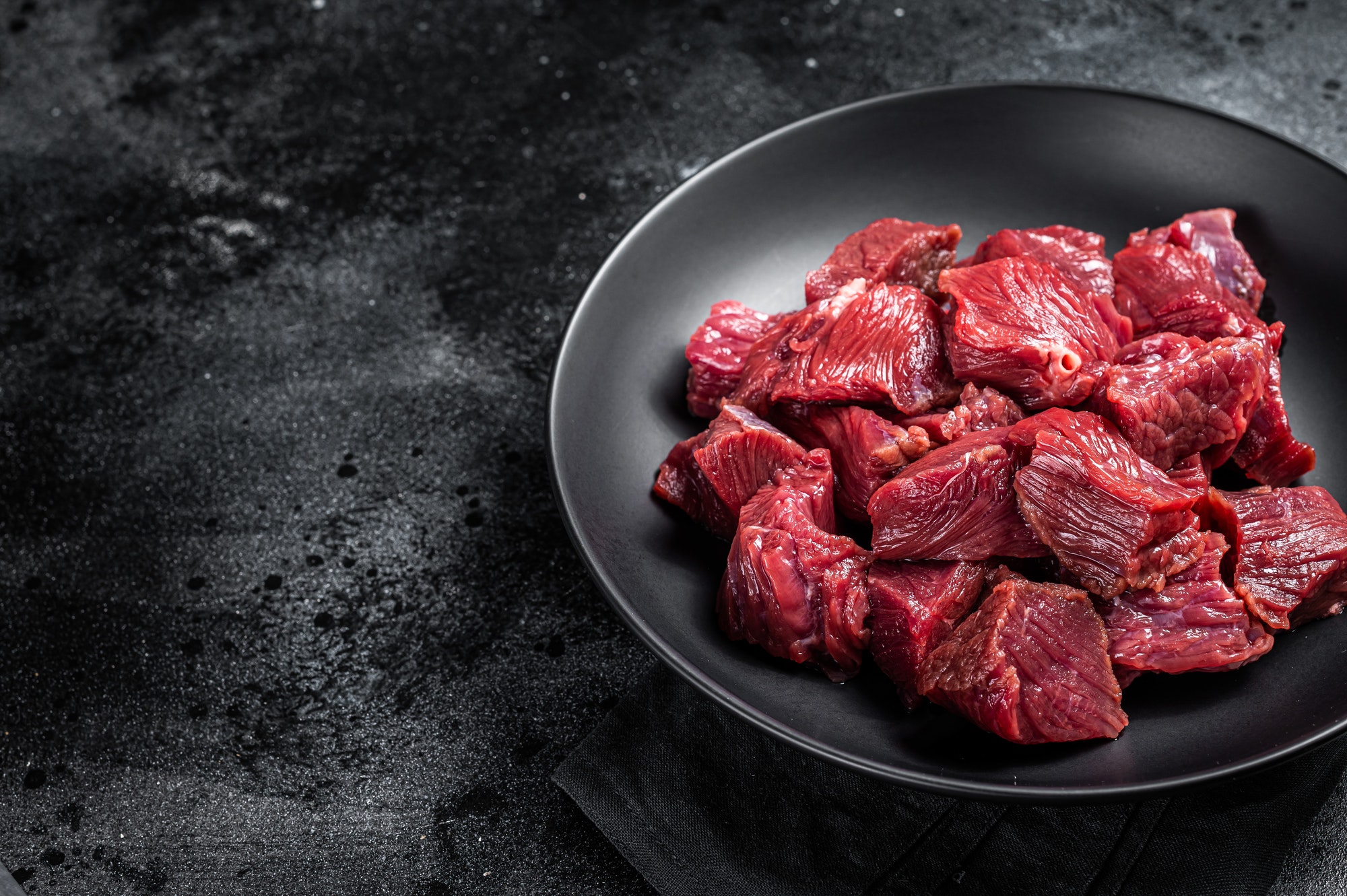
As a protein source for dogs, venison presents a unique and nutritious option rich in essential nutrients. It offers a lean protein profile, making it an excellent choice for canines with sensitivities to more common proteins like beef or chicken. Venison is low in fat and high in B vitamins such as B12 and niacin, as well as minerals like iron and zinc. This combination of nutrients supports muscle development, a healthy immune system, and proper metabolic function in dogs.
Introducing venison into a dog’s diet should be done carefully, particularly if your pet has not previously consumed it. It’s essential to source high-quality, properly handled venison to avoid contamination risks. As with any new protein source, gradual incorporation and observation for adverse reactions or digestive issues are crucial. Venison is often considered a novel protein, making it a potential option for dogs with food sensitivities or allergies, offering a protein source that’s less likely to trigger adverse reactions.
While venison can be a nutritious addition to a dog’s diet, it might only be readily available or feasible for some pet owners. Additionally, consulting with a veterinarian or pet nutritionist can guide appropriate portion sizes and ensure a balanced diet when incorporating venison. Venison can offer some dogs a novel and highly beneficial protein source. Still, individual considerations and monitoring for adverse reactions remain essential when introducing new foods into their diet.
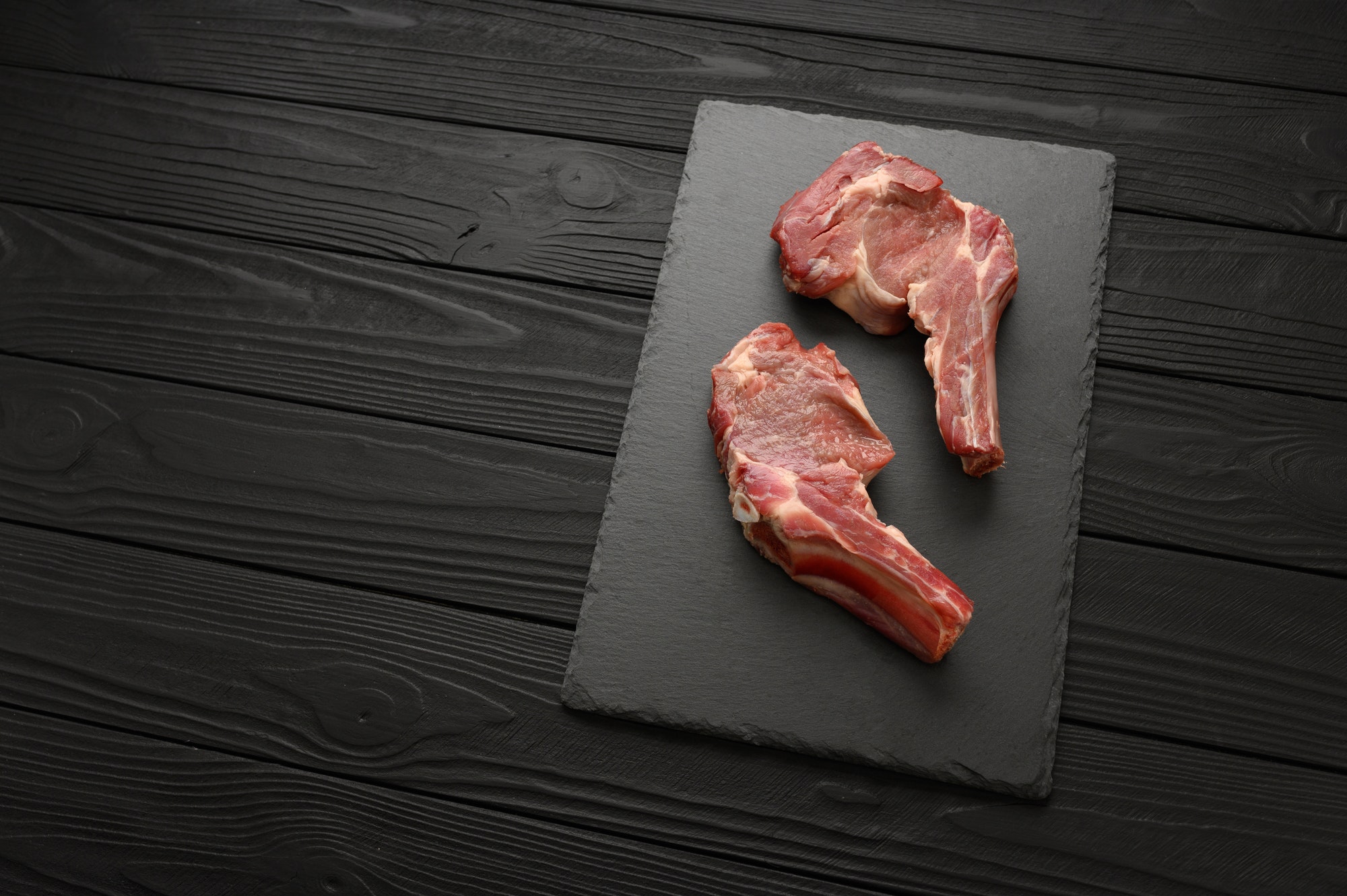
Bison meat is a nutrient-dense protein source for dogs that offers a range of benefits. Rich in high-quality protein, bison provides essential amino acids for muscle development, tissue repair, and overall canine health. Compared to traditional meats like beef, bison often contains lower fat and cholesterol levels, making it an attractive option for dogs prone to weight issues or those requiring a leaner diet. Additionally, bison is a source of iron, zinc, and vitamin B12, contributing to a dog’s energy levels, immune function, and overall well-being.
Introducing bison into a dog’s diet can provide a novel protein source, particularly beneficial for canines with sensitivities or allergies to more common proteins like chicken or beef. As with any new protein source, it’s essential to introduce bison gradually, monitoring for any signs of digestive upset or adverse reactions. High-quality, properly sourced bison meat is crucial to ensure its safety and nutritional benefits for your furry friend.
Seeking advice from a veterinarian or pet nutritionist can provide valuable guidance for integrating bison into your dog’s diet. These professionals offer expertise in determining suitable portion sizes and crafting a balanced meal regimen tailored to fulfill your dog’s individual nutritional requirements. Bison stands out as a superb protein choice for numerous dogs, delivering a concentrated source of nutrients that is easily digested and supports their overall health and vigor when included as a component of a comprehensive diet.
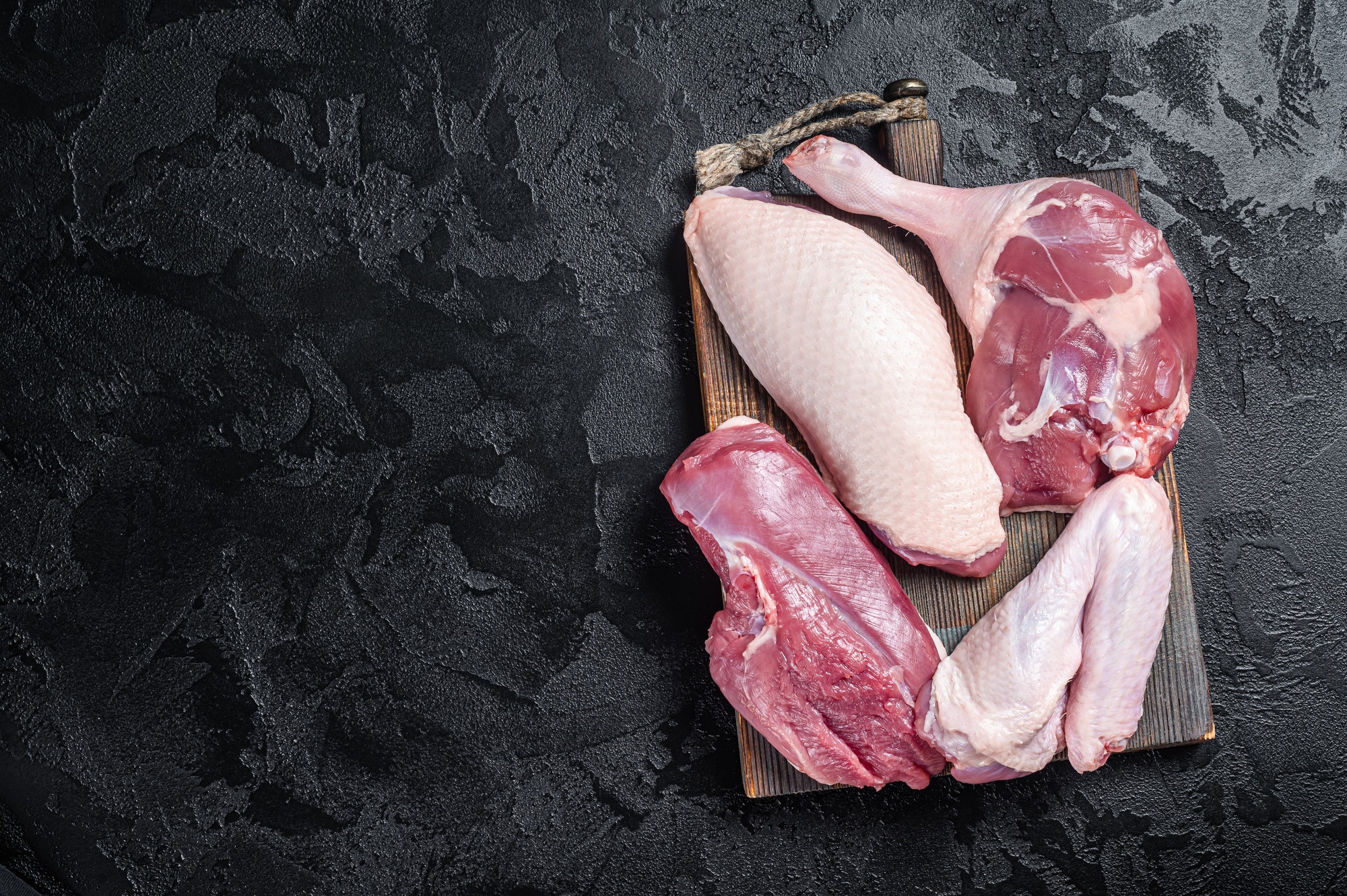
Duck meat serves as a nutrient-rich protein source for dogs, offering a range of essential nutrients vital for their health. Packed with high-quality protein, duck provides amino acids necessary for muscle development and overall canine growth. Additionally, duck is rich in iron, zinc, and various B vitamins, contributing to a dog’s energy levels, immune function, and healthy coat. Its distinct flavor often appeals to dogs, making it a palatable option for even picky eaters.
Introducing duck into a dog’s diet can be beneficial, especially for canines with allergies or sensitivities to more common proteins like chicken or beef. However, duck should be gradually introduced into your dog’s diet. It is important to monitor your pet for any adverse reactions or digestive issues. Choosing high-quality, properly handled duck meat is crucial to ensure its safety and nutritional value for your furry companion.
Consulting with a veterinarian or pet nutritionist can provide guidance on incorporating duck into your dog’s meals, including suitable portion sizes and ensuring a well-balanced diet. Duck can serve as a valuable and easily digestible protein source for many dogs, offering a range of nutrients that support their overall health and well-being when included as part of a carefully planned diet.
Protein is a vital component of your dog’s diet, crucial to their health and well-being. While there are various protein sources to consider, it’s essential to consider factors such as your dog’s individual dietary needs, allergies, and sensitivities. Chicken, beef, fish, turkey, lamb, eggs, venison, bison, and duck are all excellent options, each offering a unique set of nutrients contributing to your dog’s health.
It’s important to remember that the quality of the protein matters just as much as the source itself. Opt for lean cuts, ensure proper cooking to eliminate potential pathogens, and always be cautious with bones to prevent choking hazards. Additionally, consulting with a veterinarian or pet nutritionist can provide valuable insights into tailoring your dog’s diet to meet their specific requirements.
Ultimately, providing your furry companion with a well-balanced diet of high-quality proteins will ensure their energy, vitality, and longevity.
Gastrointestinal issues: a typical issue in the canine stomach-related framework
Gastrointestinal infection is quite possibly of the most well-known reason canines are brought to their veterinarian. There can be a large number of side effects of canine stomach-related issues, including:
Some canine stomach related issues might determine once the canine’s stomach related framework is allowed an opportunity to rest. However, more difficult circumstances could bring about weight reduction, lack of hydration and weakness. Your veterinarian can decide the suitable treatment.
Grasping canine stomach related issues
Gastrointestinal problems for the most part influence the canine stomach related framework and debilitate a canine’s capacity to process and retain supplements. These issues can be brought about by a great many variables, including:
Appropriate analysis of canine stomach related issues is frequently troublesome with such countless possible causes, diagnosing your canine’s concern can be difficult for your veterinarian. To convolute matters significantly more, the confusion can start in any piece of the canine stomach related framework, from the mouth and throat, to the stomach, liver, pancreas and digestive system.
Powerful treatment for your canine
Contingent upon the seriousness and kind of issue, your canine’s therapy can include dietary administration with an extraordinary canine nourishment for touchy stomachs, clinical administration or even stomach a medical procedure.
In the event that extra symptomatic tests are required, your veterinarian might suggest lab examinations, radiographs, or a system like endoscopy, which includes embedding a cylinder with a little camcorder into your canine’s intestinal system. This can assist with picturing the issue.
Since numerous gastrointestinal problems can bother the stomach and digestive system, an eating routine that is handily processed can assist with guaranteeing your canine gets the supplement balance important to help recuperation.
Table Pieces are not a Substitute for Canine Food
Slipping your canine table pieces might feel like a characteristic method for offering food to your canine, however it tends to be an impractical notion. Table pieces ought not be utilized as a substitute for a total and adjusted canine food. Your canine requirements adjusted nourishment that pieces from the table don’t completely give.
Adjusted Nourishment
Canines might partake in a table piece or two, yet that doesn’t mean they ought to be incorporated as a component of your canine’s eating routine. That is on the grounds that most human food doesn’t give the total and adjusted nourishment canines need.
Watch the Calories
Table pieces can add to abundance calories in your canine’s eating routine, prompting unwanted weight gain. Treats might be a superior choice, however they ought to be restricted to something like 10% of your canine’s complete day to day calories.
Counsel Your Veterinarian
Inquire as to whether these additional items are acceptable for your canine. As a general rule, table pieces are not great for your canine, and we suggest staying away from them.
Indeed, carrots are a sound nibble choice for your canine. As people know, carrots are a flexible vegetable. They can be eaten as a bite, matched with a meal and potatoes, or added to a stock or soup for some character. Carrots are additionally flexible in the liberal choice of supplements they give your canine.
As indicated by Purina specialists, a considerable lot of the very nutrients and minerals that make carrots extraordinary for people are likewise great for canines. Besides the fact that canines have can carrots, yet most canines truly appreciate them. Truth be told, carrots are so canine cordial that they’re a typical fixing in canine food.
Are Carrots Really great for Canines?
Indeed. In the same way as other different products of the soil, canines get medical advantages from carrots. As a matter of fact, all aspects of this vegetable, from the actual carrot to the verdant green tops, is ok for canines to eat.
They’re a decent, regular treat, and most canines appear to like the flavor, as well. That is the reason carrots are such an engaging other option if you have any desire to stir up your day to day canine treat schedule.
Carrots contain fundamental nutrients and minerals like beta-carotene (which the body converts to vitamin A), vitamin K, potassium, cell reinforcements and fiber.
Medical advantages of Carrots for Canines
Vision: Beta-carotene is changed over completely to vitamin A by the liver. Vitamin An aides support vision, including night vision. That is on the grounds that vitamin A movements through the circulation system to the retina, where it supports the bars and cones. Thusly, the bars and cones, which are delicate to light, speak with the cerebrum how the situation is playing out.
Heart wellbeing: Carrots are wealthy in dissolvable filaments, which can assist with overseeing blood cholesterol levels, helping the heart.
Processing: Carrots likewise contain a high measure of insoluble fiber, which assumes an essential part in eliminating poisons from the colon and keeping solid discharges more ordinary.
Skin and coat wellbeing: The vitamin An and cell reinforcement content inside carrots advances a sound and sparkly coat while supporting skin wellbeing.
When are Carrots Terrible for Canines?
Carrots are just unfortunate treats for canines whenever took care of time and again. With some restraint they’re a sound, low-calorie treat.
Like different leafy foods, carrots contain regular sugar. Therefore carrots are so scrumptious to canines and people the same. However, an excess of sugar can cause weight gain and other medical problems.
“The vast majority of your canine’s eating routine ought to comprise of a total and adjusted canine food,” says Purina Nutritionist Karina Carbo-Johnson, MS. “The excess 10% can comprise of treats.” Treats incorporate something besides your canine’s standard food — crude stows away, dental bites and canine safe table food like carrots or bananas.
Instructions to Serve Carrots to Canines
Prior to giving your canine another food, it’s dependably smart to check with your veterinarian to get the best serving size. You can cut them into rounds or cut them into sticks or little or huge pieces, contingent upon your canine’s size.
Your canine might partake in the crunch and kind of crude carrots, however on the off chance that they could do without them crude, take a stab at giving them cooked carrots. Assuming that you’re stressed over modifying the carrots’ healthy benefit by cooking them, don’t be.
“By steaming or insignificantly microwave-cooking carrots, you’re not significantly changing the nutrient and mineral substance,” makes sense of Carbo-Johnson. “Bubbling carrots, then again, will in general parasite out supplements. However you serve them, be that as it may, carrots are alright for canines.”
Continuously heed your veterinarian’s guidance, even with individuals food sources that are alright for canines. Doing so assists with safeguarding them from stomach related upset, weight gain and other medical issues.
Can dogs eat strawberries?Indeed, a dog can eat strawberries. In the event that you’re searching for a tomfoolery and safe treat to assist with growing your canine’s sense of taste, strawberries are a superb decision. In the same way as other different products of the soil, strawberries are a solid nibble decision for canines. Different choices incorporate apples, watermelon, blueberries, raspberries and then some.
Are Strawberries Great for Canines?
At the point when strawberry season shows up, we begin to integrate these new, scrumptious berries into our eating regimens. It’s normal for you to need to impart this flavorful treat to your canine companion.
Fortunately in spite of the fact that canines have different stomach related frameworks and dietary requirements, you can take care of your canine strawberries with some restraint as a protected and solid treat.
Would it be a good idea for me to Take care of My Canine Strawberries With some restraint?
Strawberries can have positive medical advantages for canines whenever given like some other treat or tidbit — in little piece sizes. “Strawberries ought to be viewed as treats and along these lines ought to make up something like a modest amount of your canine’s day to day calories,” Purina Nutritionist Karina Carbo-Johnson, MS says. Utilize this as an aide so the strawberries you feed your canine won’t make him gain additional pounds.
We love to eat strawberries since they are sweet, however sweet means sugar. A great deal of sugar, when it comes from natural product, isn’t helpful to canines. Downplaying sugar admission is one more motivation to try not to give a canine an excessive number of strawberries.
What are the Medical advantages of Strawberries for Canines?
Strawberries come loaded with cancer prevention agents, which are fundamental for people and canines the same. Cancer prevention agents support the security of cells inside the body from free extreme harm. They likewise assist with advancing wellbeing all through the body and can support the resistant framework, possibly assuming a part in aiding battle or forestall sicknesses and illnesses.
Strawberries likewise include:
High water content
Fiber
L-ascorbic acid
A tooth brightening compound known as malic corrosive
The most effective method to Take care of Strawberries to Canines
“Strawberries can be a previously unheard-of surface for canines,” says Purina Nutritionist Karina Carbo-Johnson. “Have a go at taking care of them a solitary strawberry as a puree or as a frozen treat to begin.”
Taking care of strawberries gradually implies canine proprietors will see in the event that they cause an issue. Call your veterinarian in the event that you notice stomach irritated, stomach related issues, extraordinary scratching, or an expansion in thirst. Any of these are a marker that strawberries probably won’t be reasonable for your canine.
What is the Most ideal Way to Get ready Strawberries for Canines?
“Ensure you flush and clean strawberries completely prior to taking care of to your canine,” Carbo-Johnson says. Washing helps flush away soil and leftover synthetic substances.
Canine proprietors ought to remember that any food can be a stifling danger, even strawberries. In this way, subsequent to washing them, eliminate the stem. Attempt to make strawberries more straightforward to eat for little varieties or young doggies by cutting strawberries into scaled down pieces. Pureeing or squashing them might function admirably.
For bigger canines, cutting them in two or serving the berry entire ought to be fine.
Are Canned Strawberries Awful for Canines?
Indeed! “Natural products that are bundled in syrup or improved can be unsafe for your canine as they contain abundance sugars and calories. It is ideal to give new or frozen strawberries,” Carbo-Johnson makes sense of. Additionally, the canned strawberries might have added substances in them — like the counterfeit sugar xylitol — that can be hazardous or even destructive for canines.
What Different Berries are Great for Canines?
Will canines eat different kinds of berries? Indeed! Blueberries, raspberries, blackberries and cranberries are protected choices for canines, as well. In spite of the fact that cranberries can be unpleasant and overall canines could do without a severe taste. Not all berries are ok for your canine, nonetheless. Some – juniper berries or berries with pits – can be risky for them to eat. Continuously be cautious and exploration any new food prior to taking care of it to them.